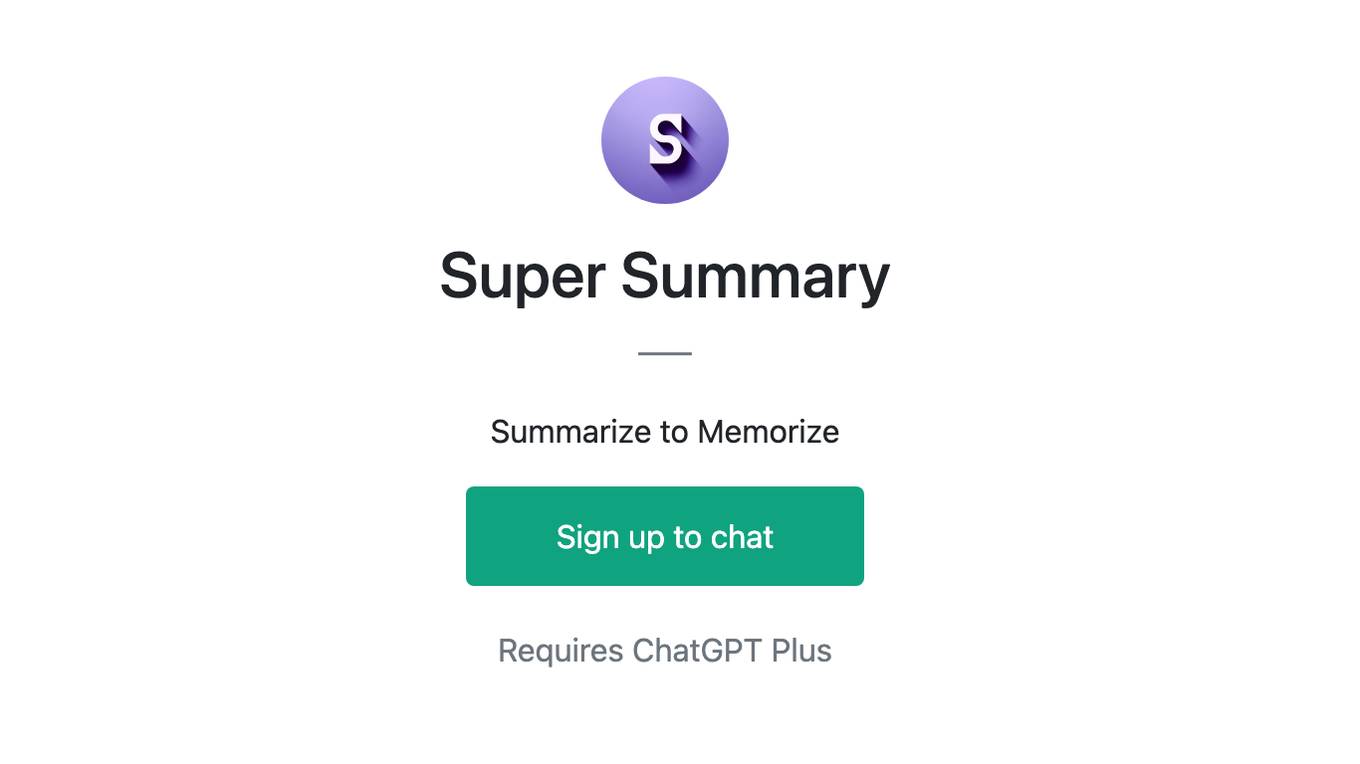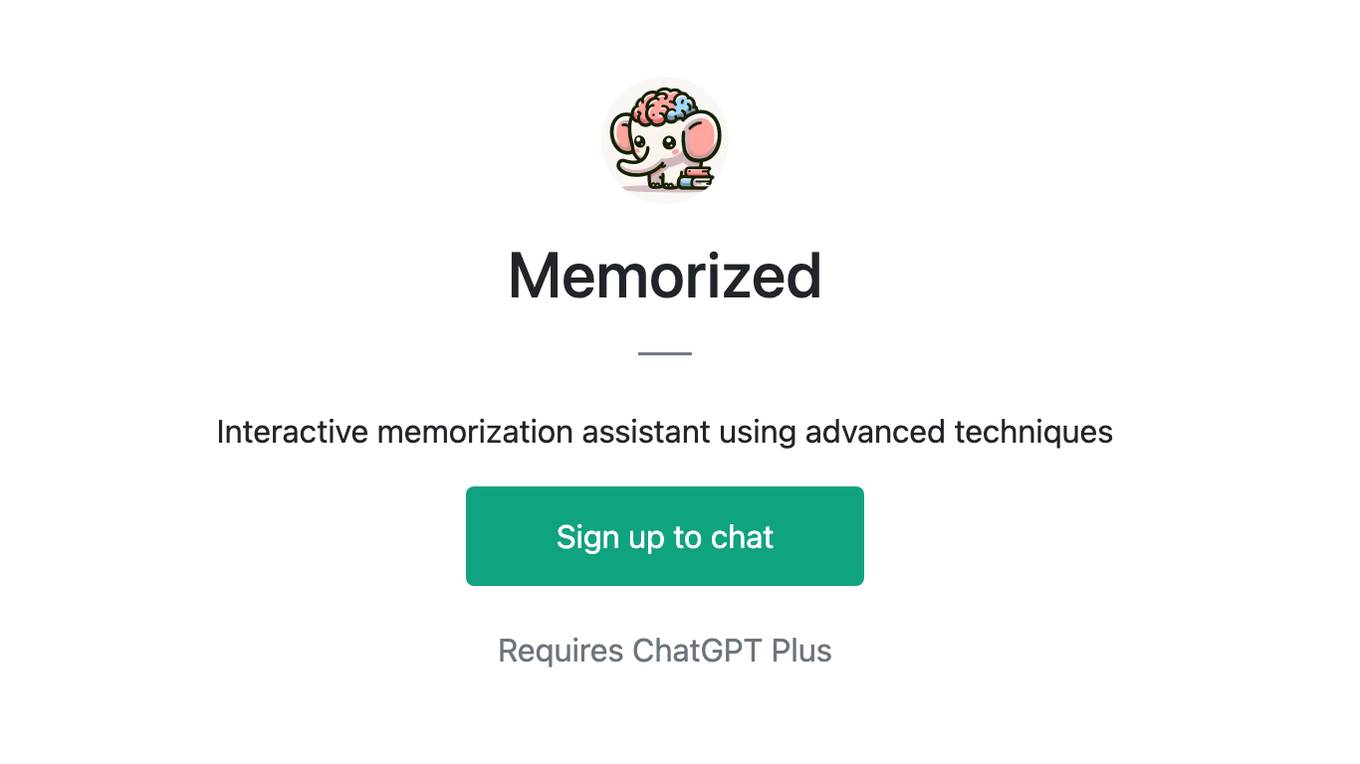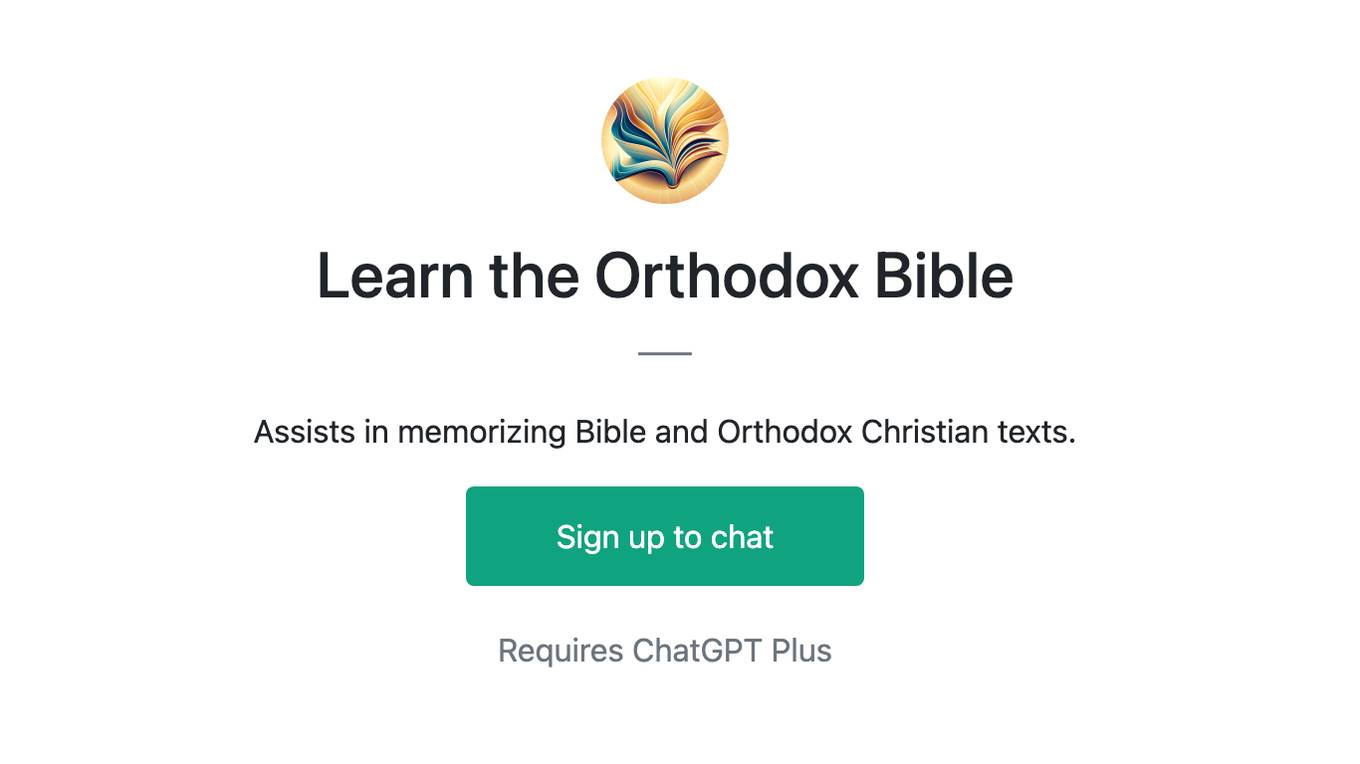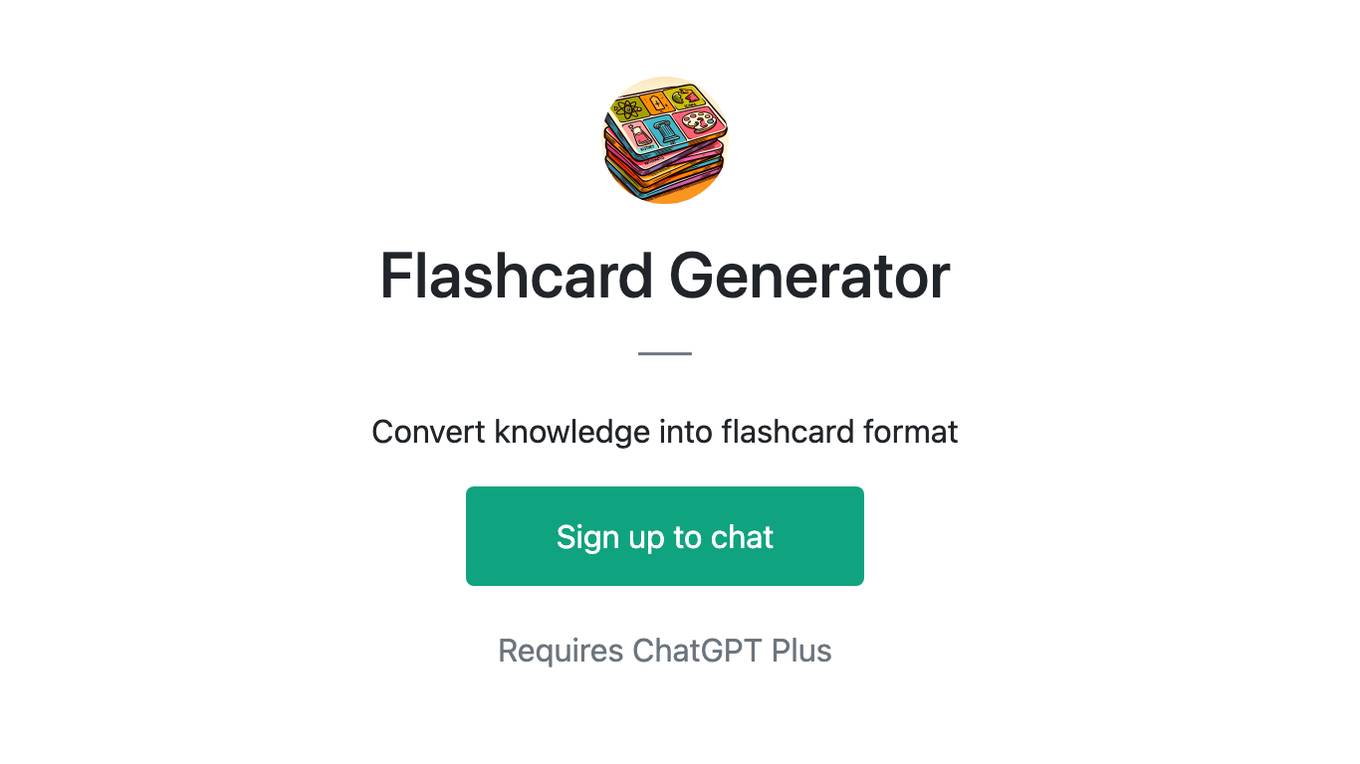Best AI tools for< memorize speeches >
14 - AI tool Sites
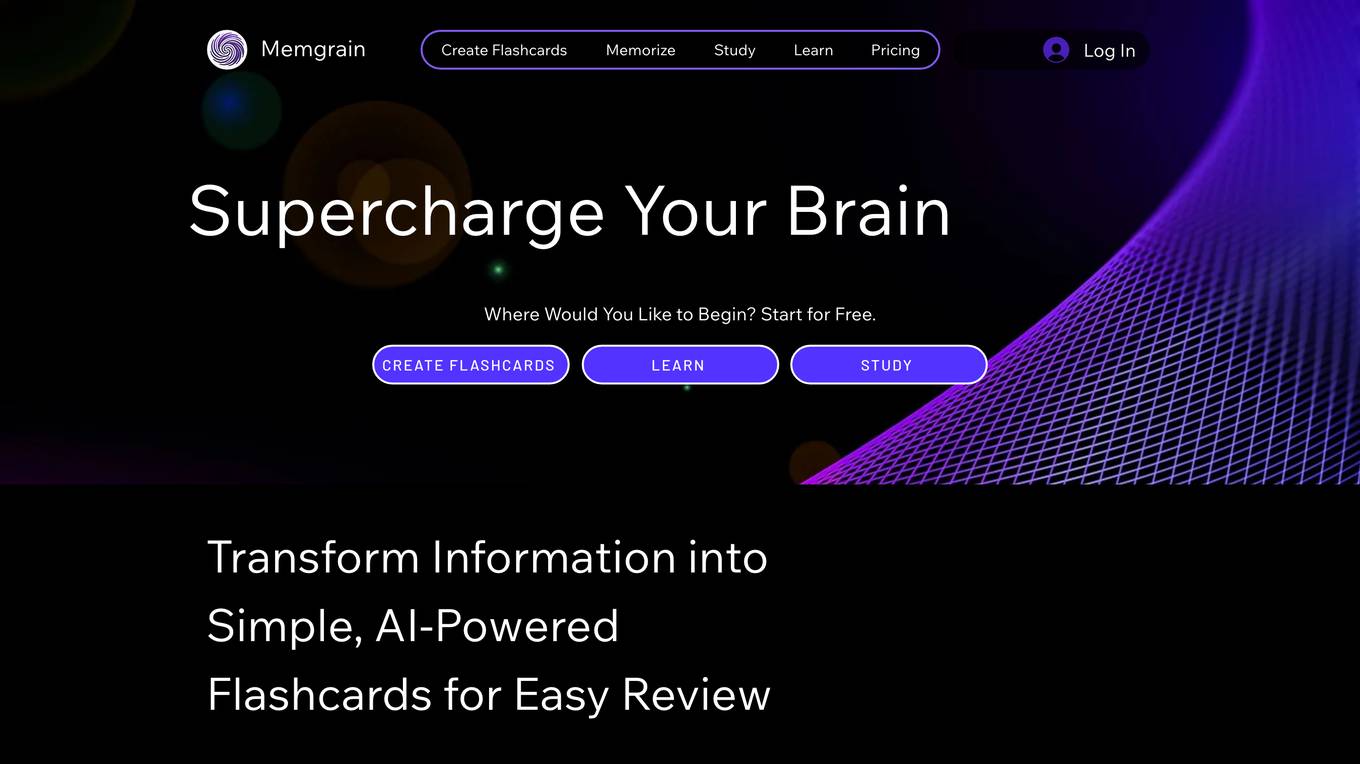
Memgrain
Memgrain is an AI-powered learning platform that helps users create flashcards, study, and memorize information. It uses AI to convert notes, PDFs, lecture slides, webpages, audio files, and more into interactive flashcards within seconds. Memgrain also offers a variety of study modes, including spaced repetition, to help users retain information long-term. Additionally, Memgrain provides users with access to daily insights, book summaries, and quotes to help them continue learning and growing.
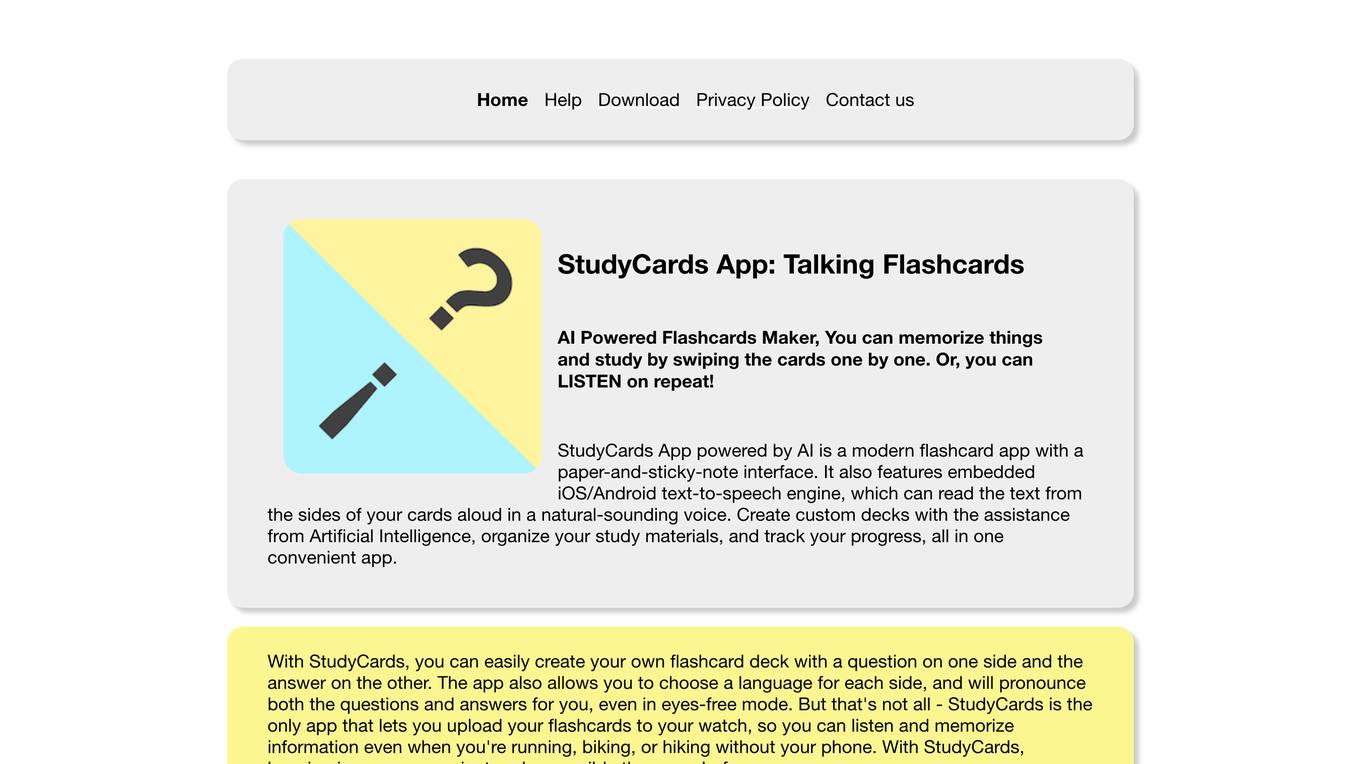
StudyCards App
StudyCards App is an AI-powered flashcard maker that helps users memorize and study by swiping cards or listening to them on repeat. It features an embedded text-to-speech engine, custom deck creation with AI assistance, and the ability to upload flashcards to smartwatches. The app is designed to aid people with low vision, ADHD, dyslexia, and reading disorders, offering a convenient and accessible learning experience.
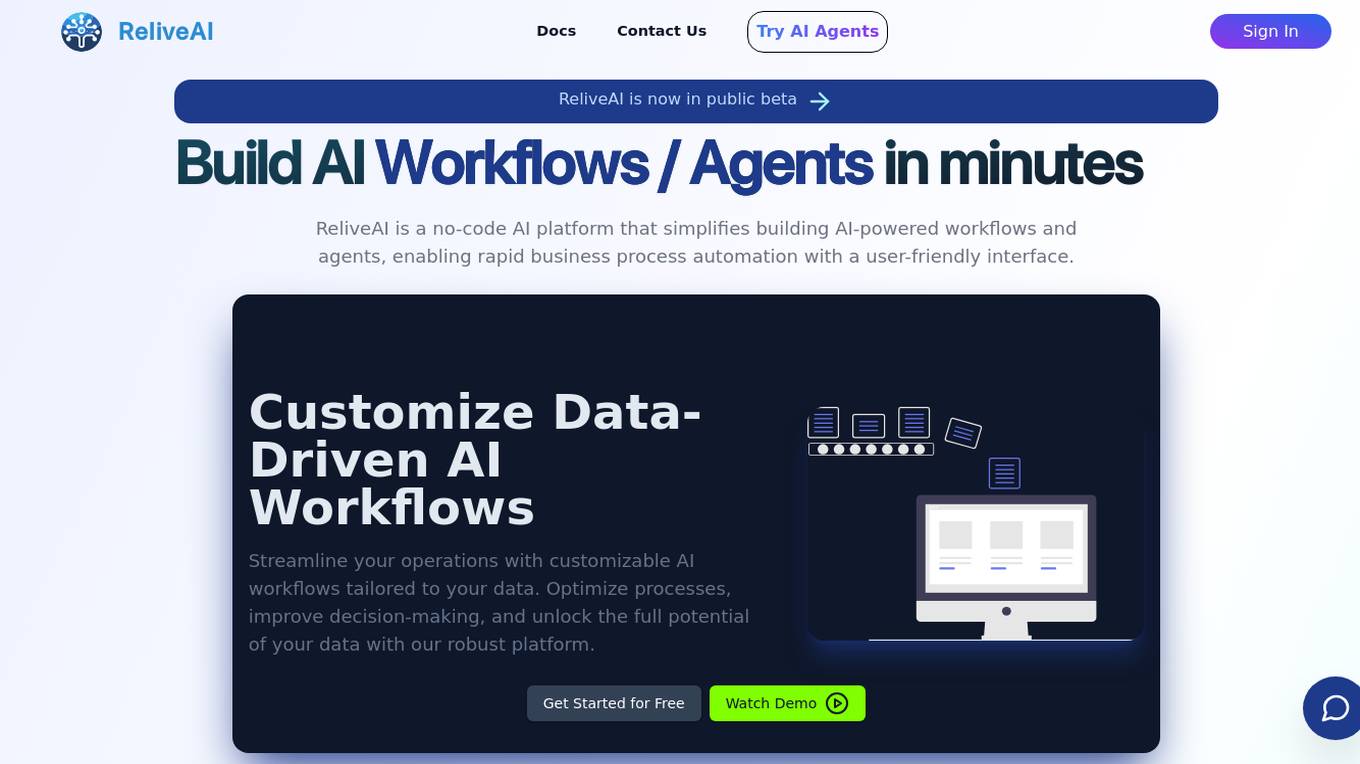
ReliveAI
ReliveAI is a no-code AI platform that simplifies building AI-powered workflows and agents, enabling rapid business process automation with a user-friendly interface. It offers prebuilt AI Agents to transform business operations, customizable AI workflows tailored to user data, and seamless integration with multiple AI models and APIs. The platform enhances Salesforce with advanced NLP, translates natural language into precise SQL queries, and provides automation for Airtable, Gmail, Notion, Slack, and Google Drive. ReliveAI aims to optimize processes, improve decision-making, and unlock the full potential of user data.
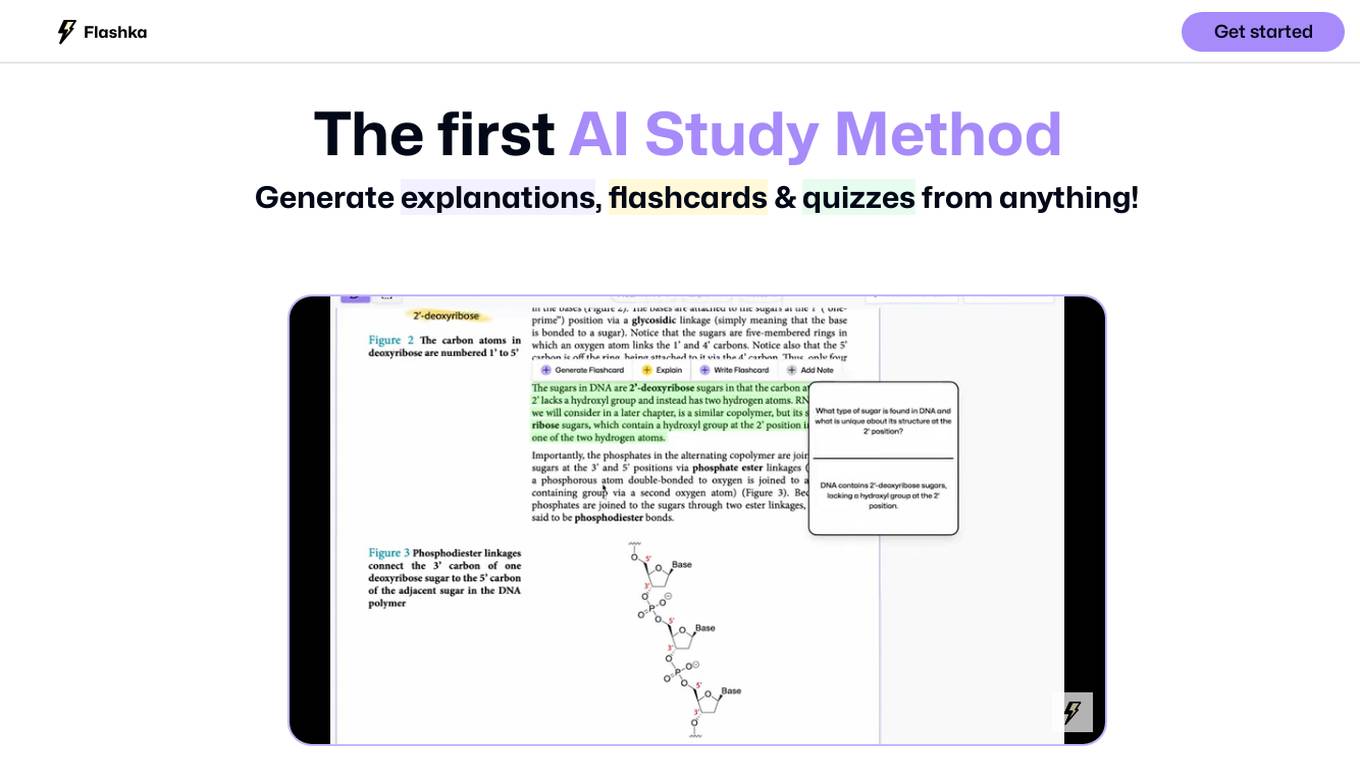
Flashka
Flashka is an AI-powered study tool designed to help users learn faster through flashcards, quizzes, and explanations. It generates personalized study materials from any content, making studying more efficient and effective. With features like AI flashcards, quizzes, and spaced repetition algorithm, Flashka aims to support students in mastering knowledge and boosting confidence in their learning journey.
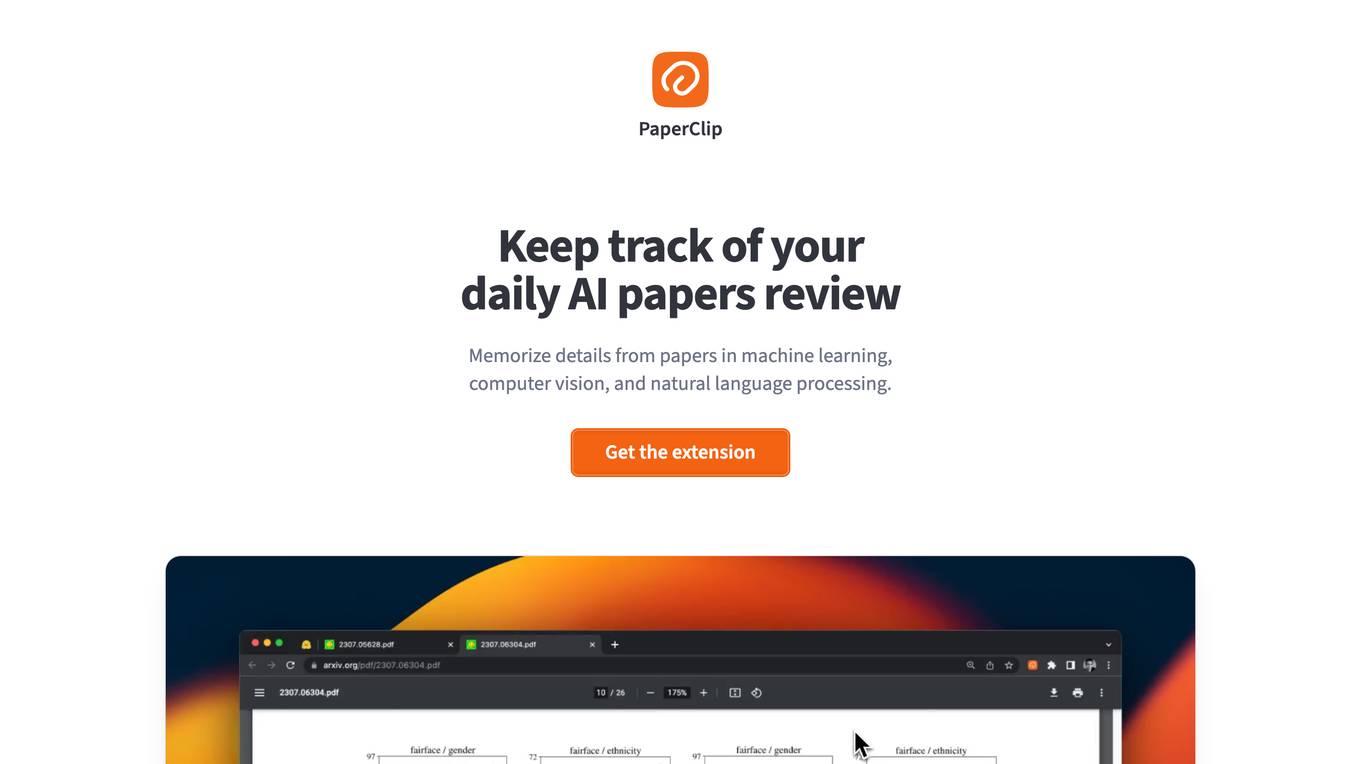
PaperClip
PaperClip is an AI tool designed to help users keep track of their daily AI papers review. It allows users to memorize details from papers in machine learning, computer vision, and natural language processing. The tool provides an extension to easily find back important findings and memorize content from AI research papers, ML blog posts, and news. PaperClip's AI runs locally, ensuring data privacy by not sending any information to external servers. With features like offline support, clean data reset, and no external API calls, PaperClip offers a convenient and secure way to manage research findings.

NewWord
NewWord is an AI-powered language learning tool designed to help users memorize and expand their vocabulary efficiently. It offers innovative features such as personalized word management solutions, AI-powered insights, and a unique traceability system. The application aims to make language learning more convenient and enjoyable by providing diversified review strategies and daily reminders. NewWord is suitable for individuals looking to enhance their linguistic skills through practical exercises and scenario-based learning modules.
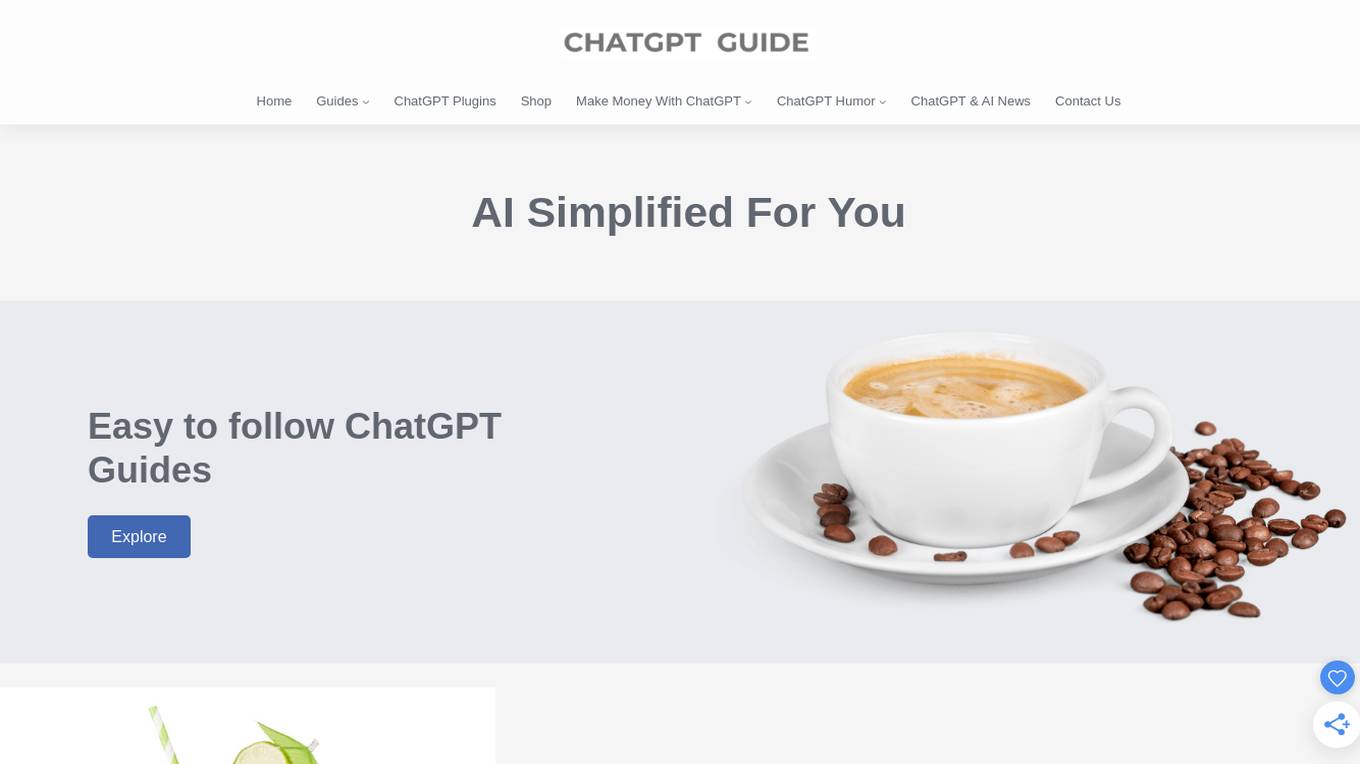
ChatGPTGuide
ChatGPTGuide.ai is an AI tool designed to provide easy-to-follow guides and tips for normal users on various topics such as productivity, career development, personal goals, and more. It offers a wide range of resources and prompts to help users leverage the power of AI, specifically ChatGPT, in their daily tasks and activities. The website aims to simplify complex AI concepts and make them accessible to a broader audience, empowering individuals to enhance their skills and achieve their goals with the help of artificial intelligence.

Wordjotter
Wordjotter is an AI-powered Anki flashcards application that utilizes artificial intelligence to enhance the learning experience. It helps users create and study flashcards efficiently by leveraging AI algorithms to optimize content and improve retention. With Wordjotter, users can easily create personalized flashcards, receive intelligent recommendations, track their progress, and collaborate with others in a seamless manner. The application aims to revolutionize the traditional flashcard learning method by incorporating AI technology to make learning more effective and engaging.
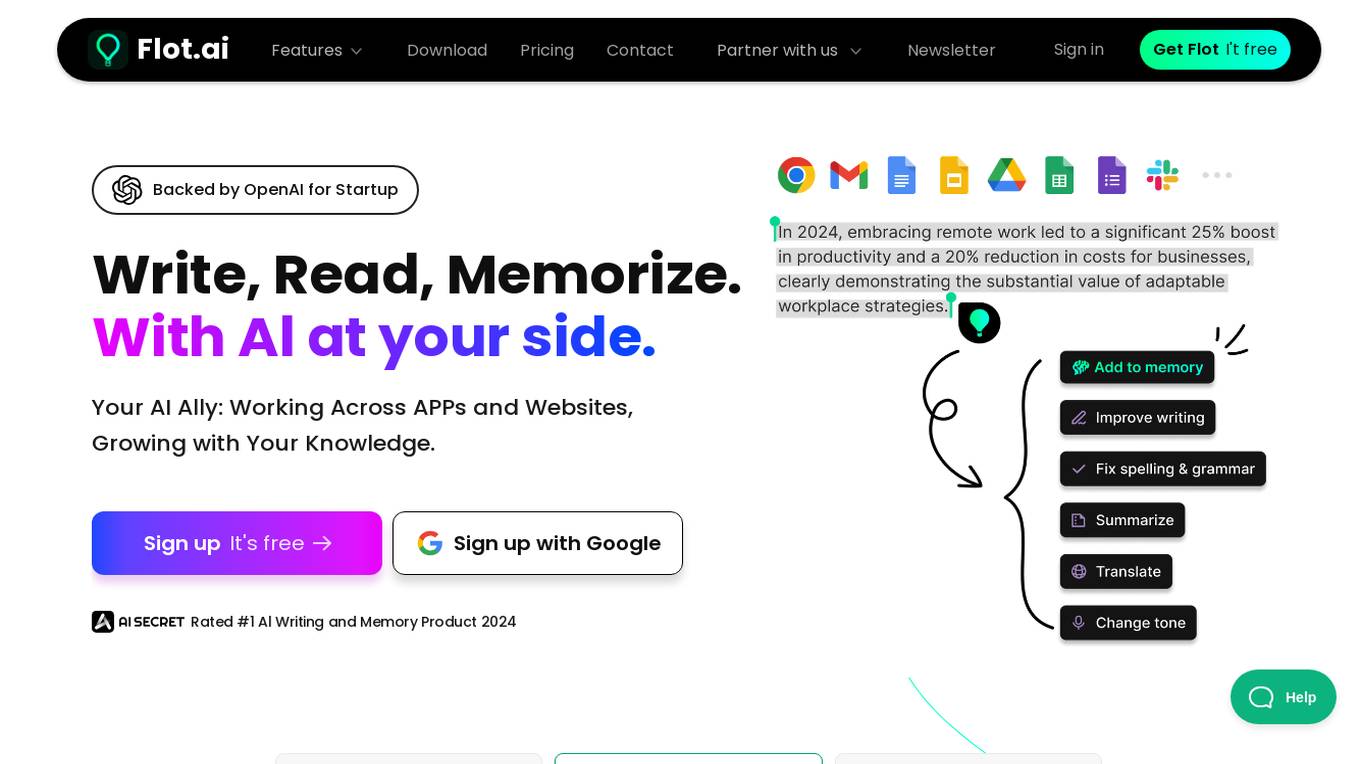
Flot AI
Flot AI is an AI-powered platform that assists users in writing, reading, and memorizing with the help of Al, the virtual assistant. It provides innovative solutions for enhancing productivity and learning efficiency. With Flot AI, users can create, edit, and organize their written content, improve reading comprehension, and enhance memory retention through personalized techniques and interactive exercises.
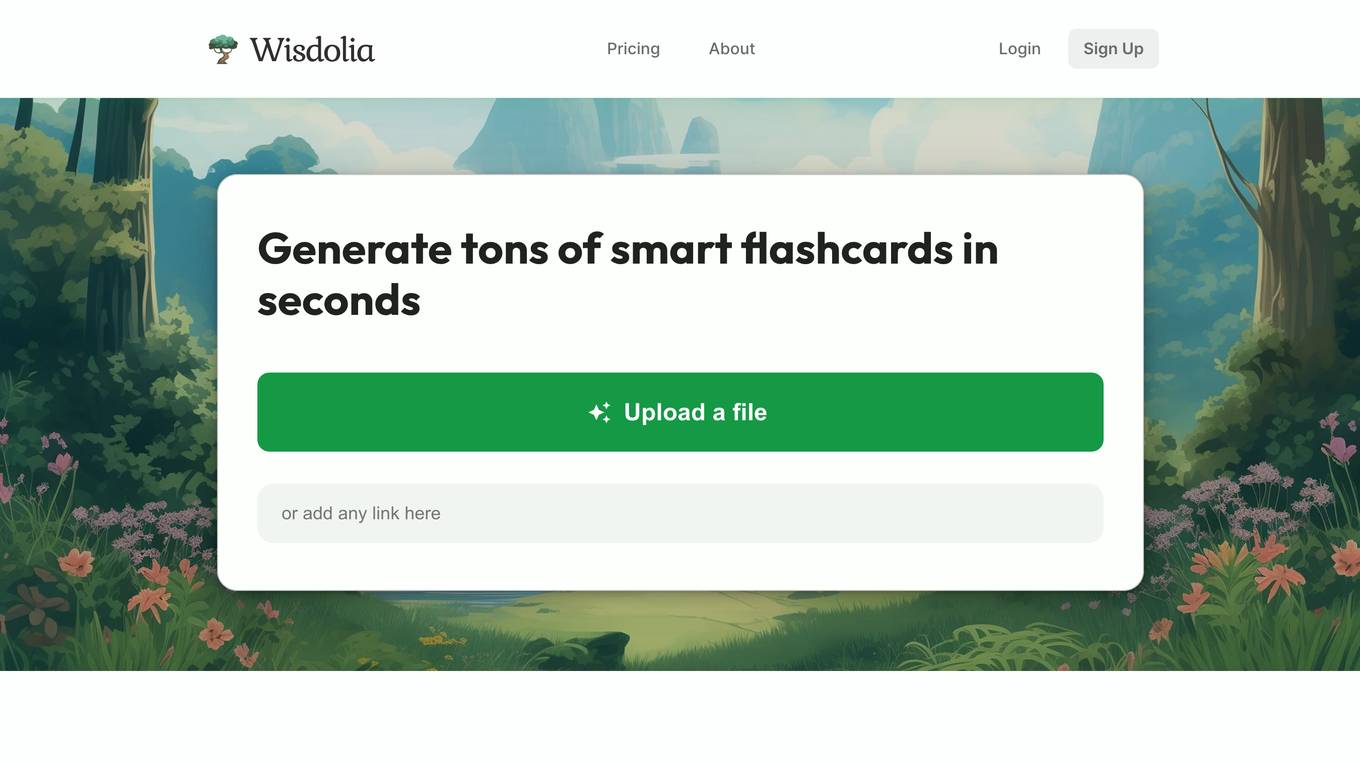
Wisdolia
Wisdolia is an AI-powered flashcard maker that helps you create flashcards in seconds, not hours. With Wisdolia, you can easily create beautiful flashcards with images, audio, and text. You can also share your flashcards with others and collaborate on projects.
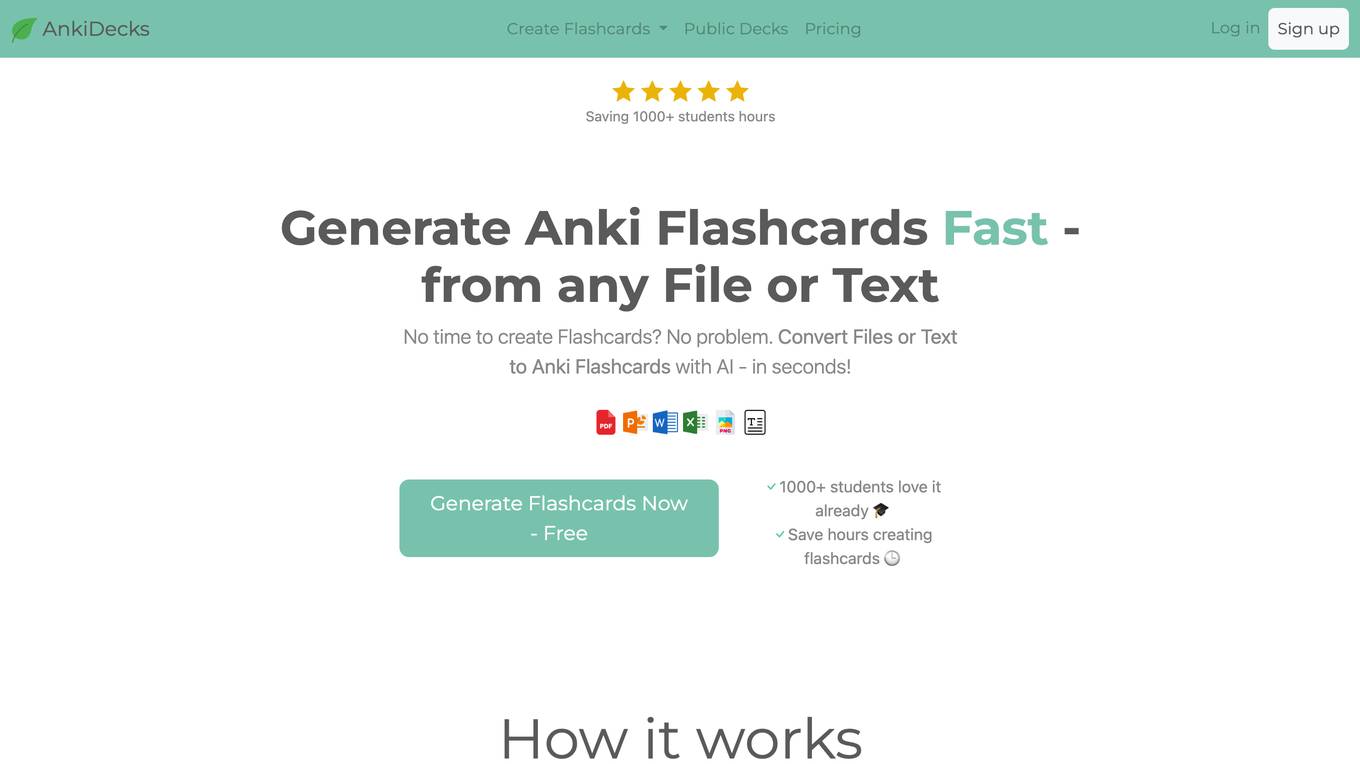
AnkiDecks
AnkiDecks is an online tool that helps users generate flashcards from files or text using AI. It supports various file formats, including PDFs, Word documents, PowerPoint presentations, and text files. The generated flashcards can be used for studying purposes, particularly for language learning. AnkiDecks also offers features such as cloze (fill-in-the-blank) flashcards and text-to-speech functionality for language flashcards. Users can import the generated flashcards into the popular flashcard software Anki for further review and practice.
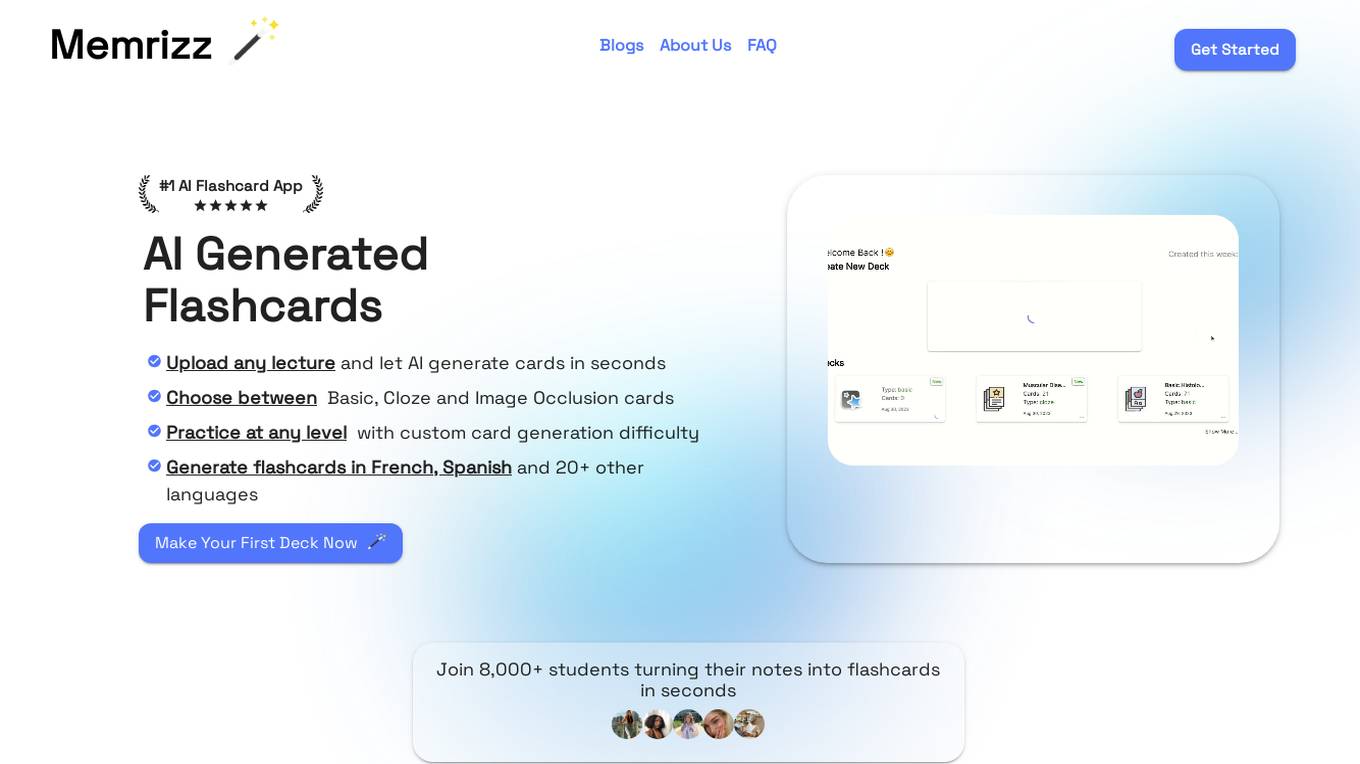
Memrizz
Memrizz is an AI-powered flashcard generator that helps you create personalized flashcards for effective learning. With Memrizz, you can easily create flashcards from text, images, or audio files, and customize them to fit your learning style. Memrizz also provides spaced repetition and gamification features to make learning more engaging and efficient.
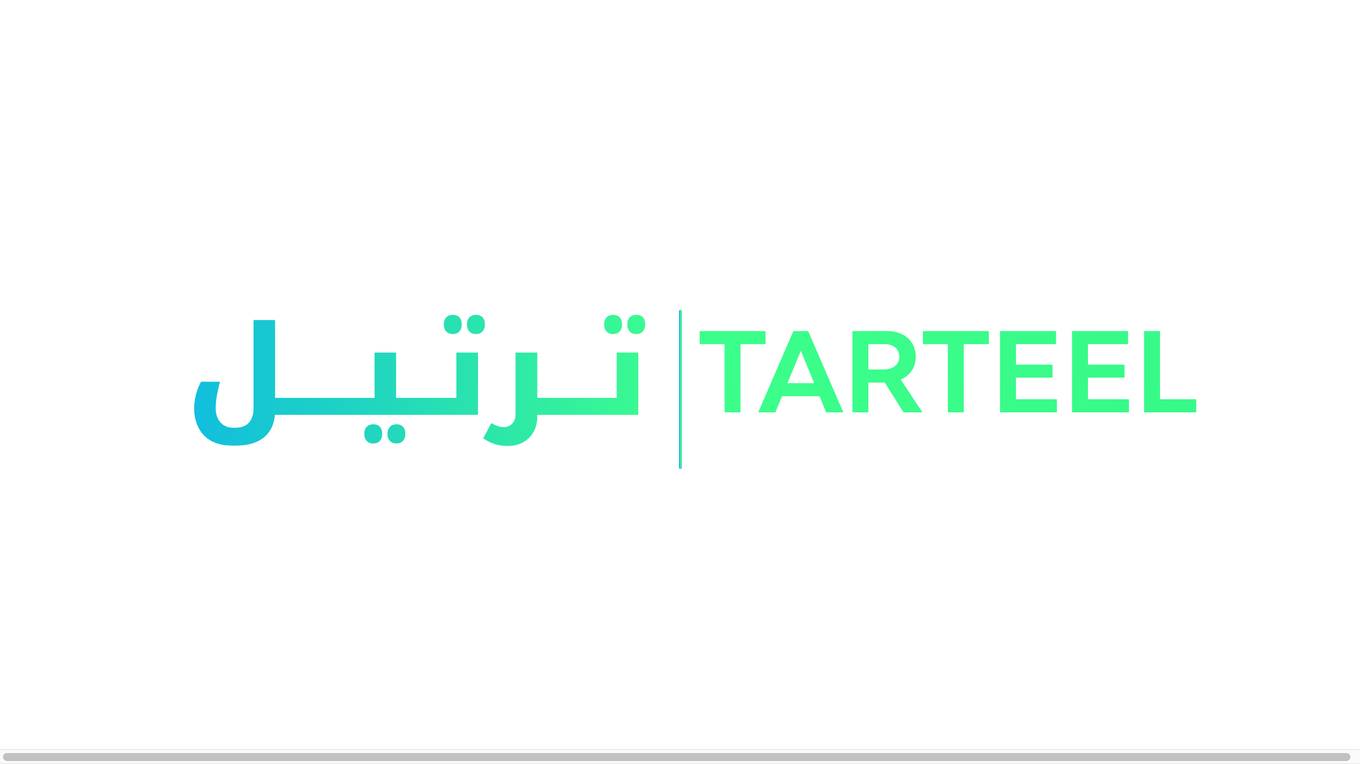
Tarteel AI
Tarteel AI is an AI-powered application designed to help users memorize the Quran more effectively. It offers features such as mistake detection, memorization planning, and goal setting. With Tarteel AI, users can tailor their memorization journey to their learning style and preferences. The application provides real-time alerts for missed, incorrect, and skipped words during recitation, enhancing the memorization experience. Tarteel AI aims to create a premium memorization experience for users seeking to improve their Quranic recitation skills.
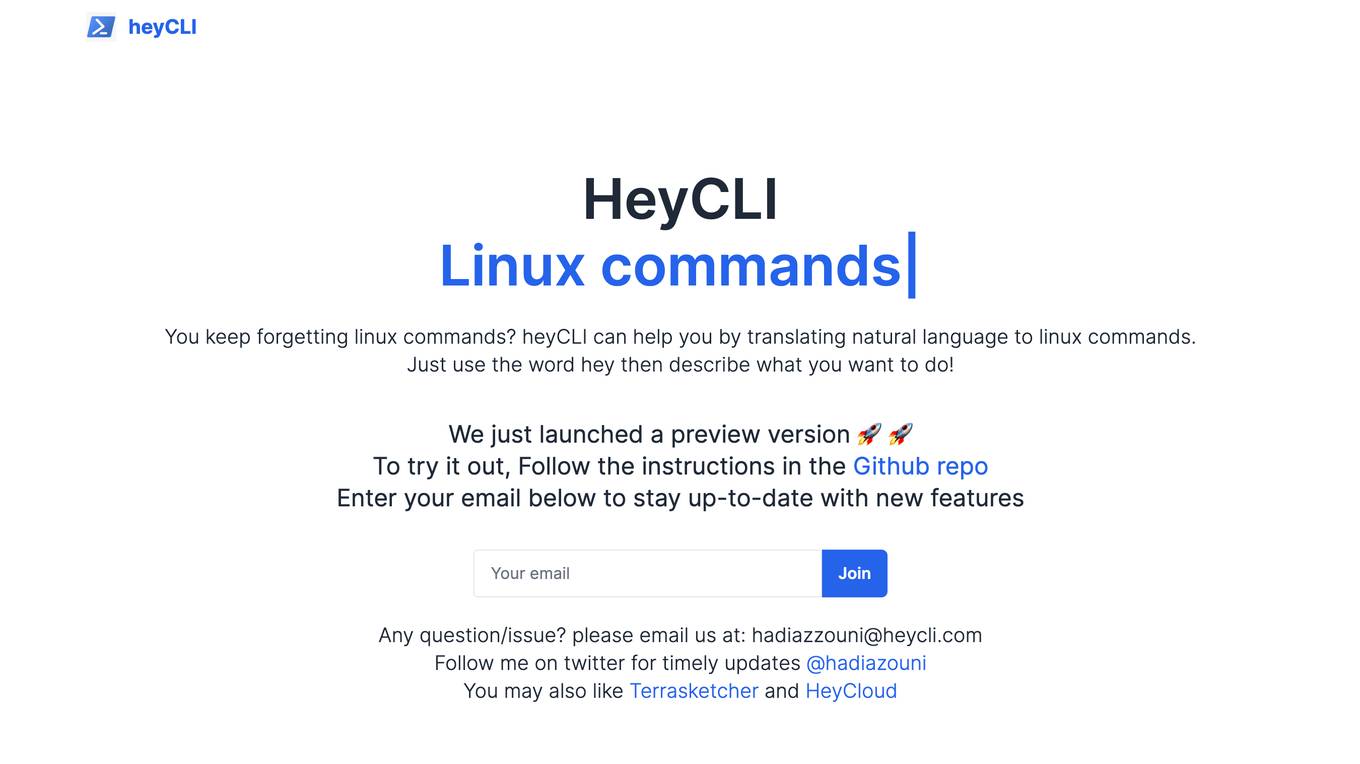
heyCLI
heyCLI is a command-line interface (CLI) tool that allows users to interact with their Linux systems using natural language. It is designed to make it easier for users to perform common tasks without having to memorize complex commands. heyCLI is still in its early stages of development, but it has the potential to be a valuable tool for both new and experienced Linux users.
19 - Open Source AI Tools
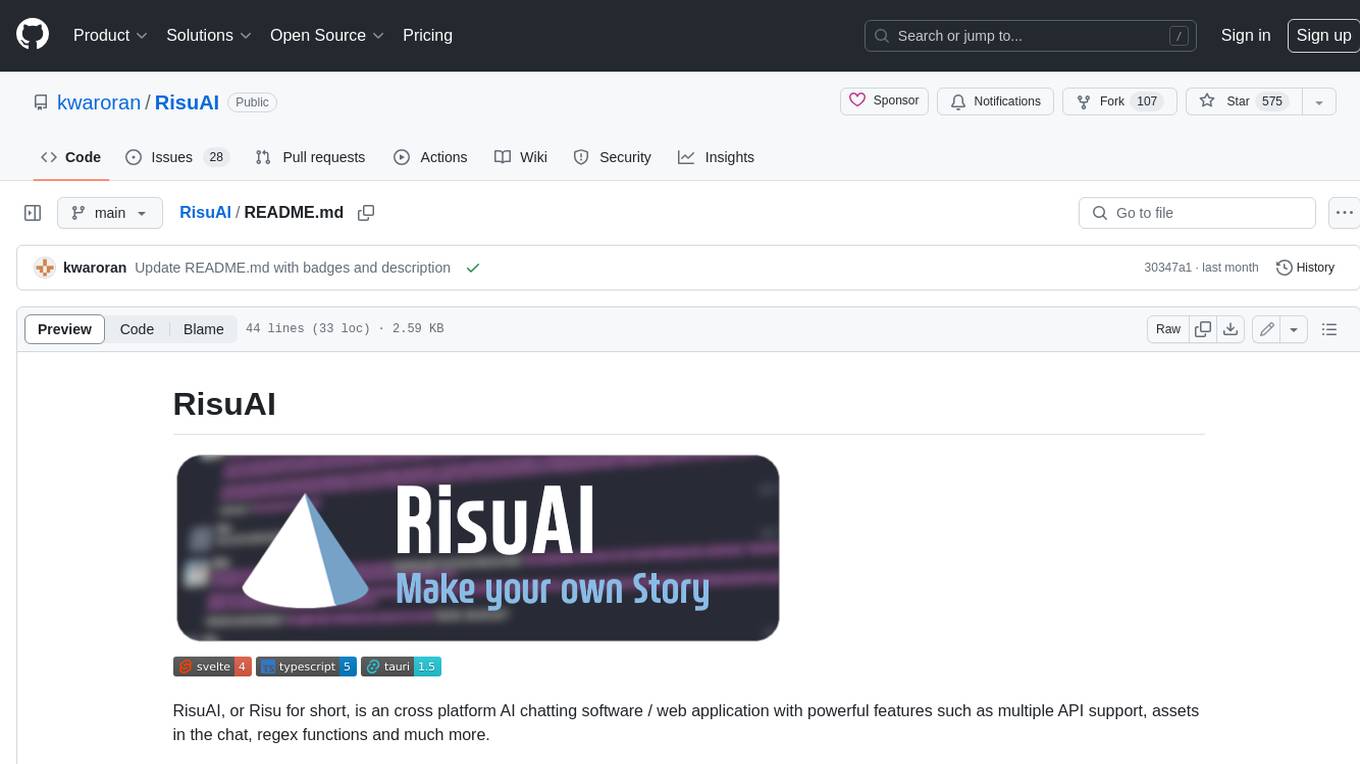
RisuAI
RisuAI, or Risu for short, is a cross-platform AI chatting software/web application with powerful features such as multiple API support, assets in the chat, regex functions, and much more.
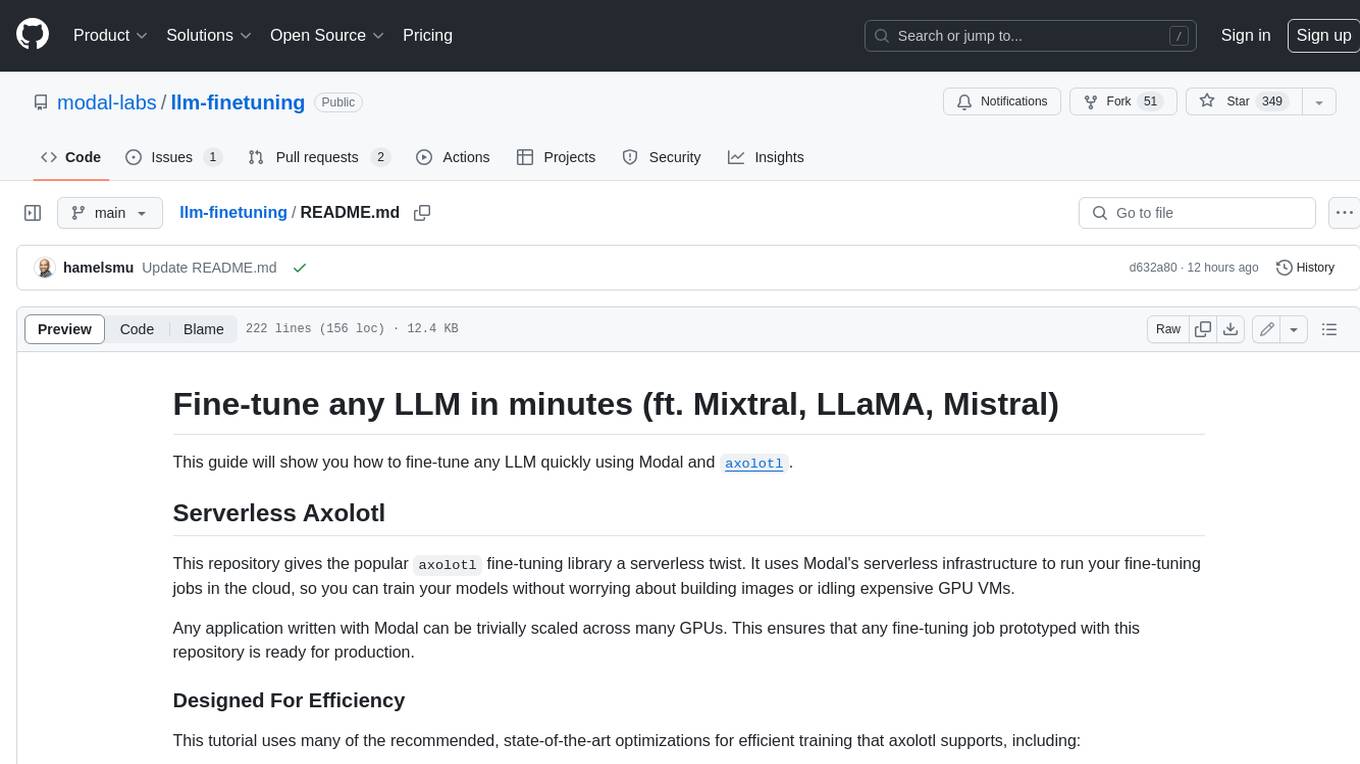
llm-finetuning
llm-finetuning is a repository that provides a serverless twist to the popular axolotl fine-tuning library using Modal's serverless infrastructure. It allows users to quickly fine-tune any LLM model with state-of-the-art optimizations like Deepspeed ZeRO, LoRA adapters, Flash attention, and Gradient checkpointing. The repository simplifies the fine-tuning process by not exposing all CLI arguments, instead allowing users to specify options in a config file. It supports efficient training and scaling across multiple GPUs, making it suitable for production-ready fine-tuning jobs.
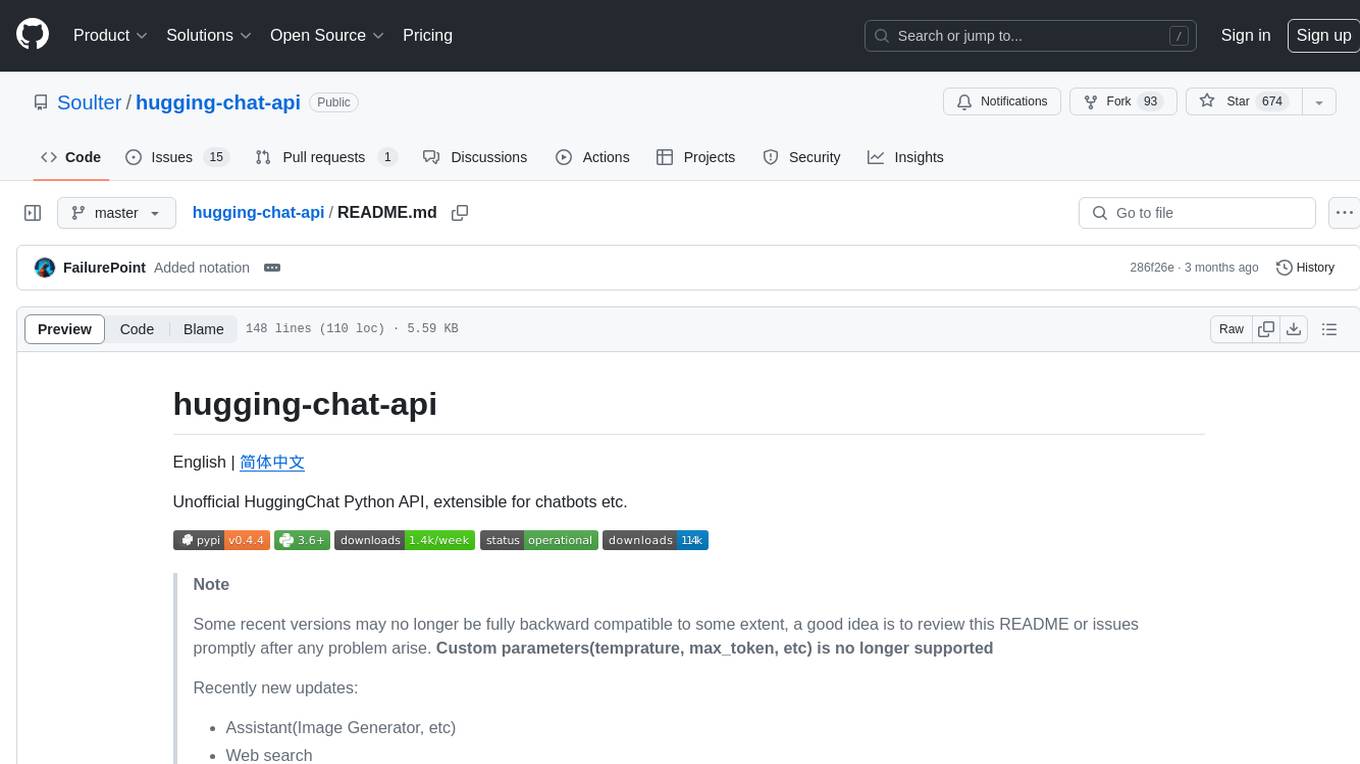
hugging-chat-api
Unofficial HuggingChat Python API for creating chatbots, supporting features like image generation, web search, memorizing context, and changing LLMs. Users can log in, chat with the ChatBot, perform web searches, create new conversations, manage conversations, switch models, get conversation info, use assistants, and delete conversations. The API also includes a CLI mode with various commands for interacting with the tool. Users are advised not to use the application for high-stakes decisions or advice and to avoid high-frequency requests to preserve server resources.
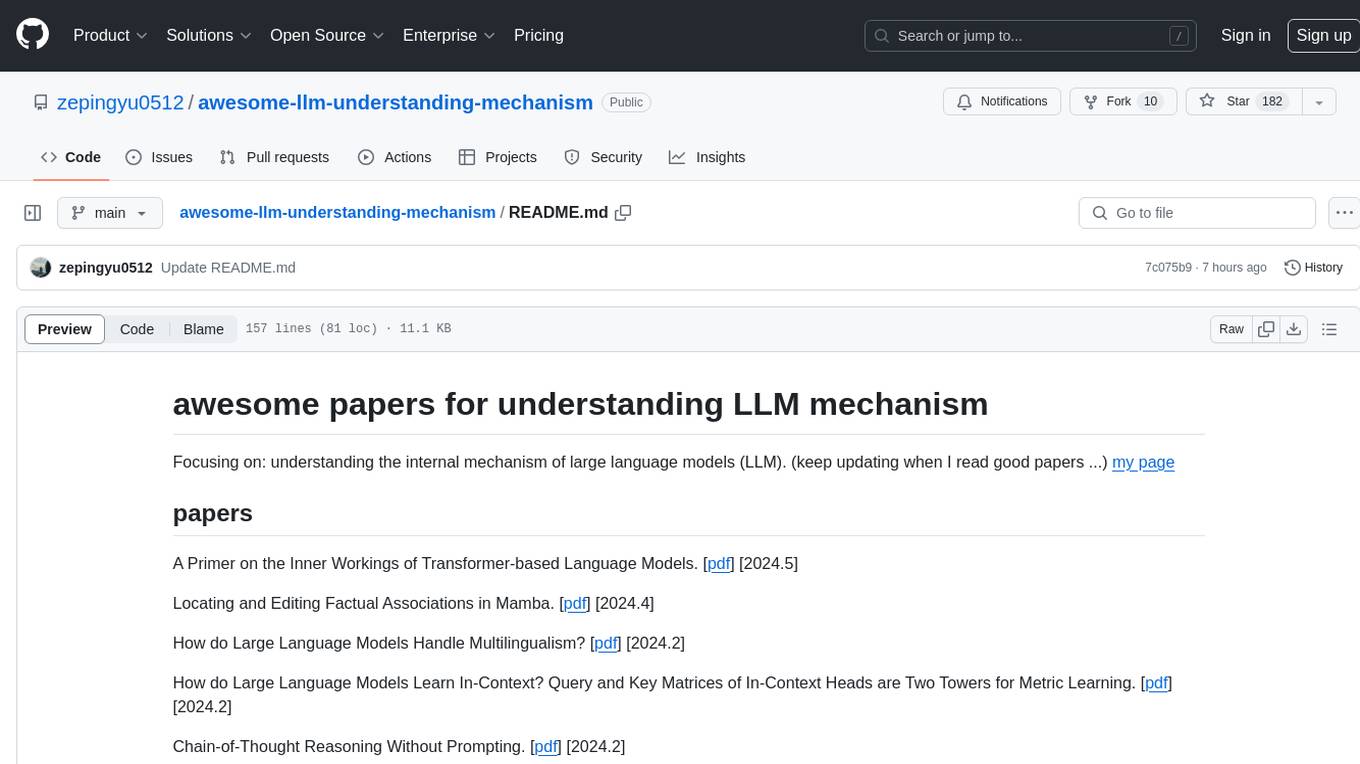
awesome-llm-understanding-mechanism
This repository is a collection of papers focused on understanding the internal mechanism of large language models (LLM). It includes research on topics such as how LLMs handle multilingualism, learn in-context, and handle factual associations. The repository aims to provide insights into the inner workings of transformer-based language models through a curated list of papers and surveys.
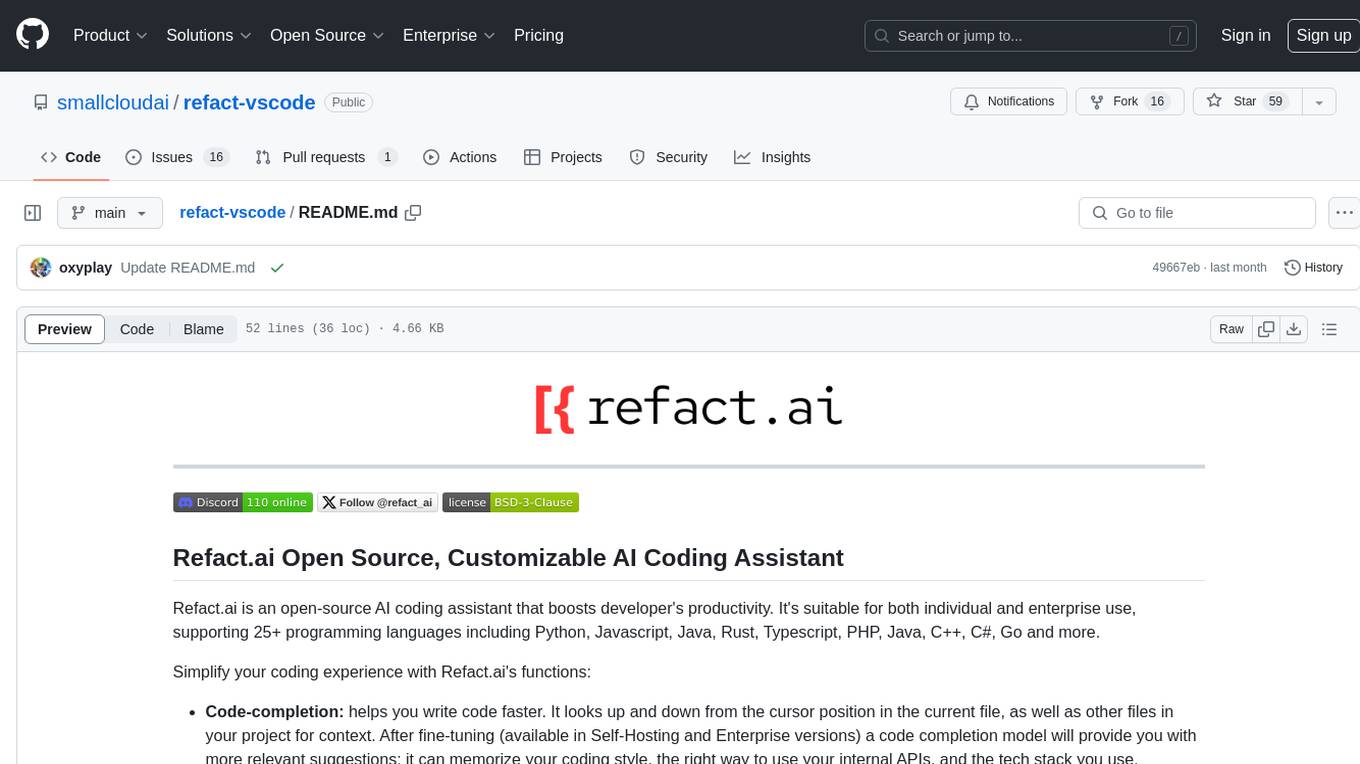
refact-vscode
Refact.ai is an open-source AI coding assistant that boosts developer's productivity. It supports 25+ programming languages and offers features like code completion, AI Toolbox for code explanation and refactoring, integrated in-IDE chat, and self-hosting or cloud version. The Enterprise plan provides enhanced customization, security, fine-tuning, user statistics, efficient inference, priority support, and access to 20+ LLMs for up to 50 engineers per GPU.

skyvern
Skyvern automates browser-based workflows using LLMs and computer vision. It provides a simple API endpoint to fully automate manual workflows, replacing brittle or unreliable automation solutions. Traditional approaches to browser automations required writing custom scripts for websites, often relying on DOM parsing and XPath-based interactions which would break whenever the website layouts changed. Instead of only relying on code-defined XPath interactions, Skyvern adds computer vision and LLMs to the mix to parse items in the viewport in real-time, create a plan for interaction and interact with them. This approach gives us a few advantages: 1. Skyvern can operate on websites it’s never seen before, as it’s able to map visual elements to actions necessary to complete a workflow, without any customized code 2. Skyvern is resistant to website layout changes, as there are no pre-determined XPaths or other selectors our system is looking for while trying to navigate 3. Skyvern leverages LLMs to reason through interactions to ensure we can cover complex situations. Examples include: 1. If you wanted to get an auto insurance quote from Geico, the answer to a common question “Were you eligible to drive at 18?” could be inferred from the driver receiving their license at age 16 2. If you were doing competitor analysis, it’s understanding that an Arnold Palmer 22 oz can at 7/11 is almost definitely the same product as a 23 oz can at Gopuff (even though the sizes are slightly different, which could be a rounding error!) Want to see examples of Skyvern in action? Jump to #real-world-examples-of- skyvern
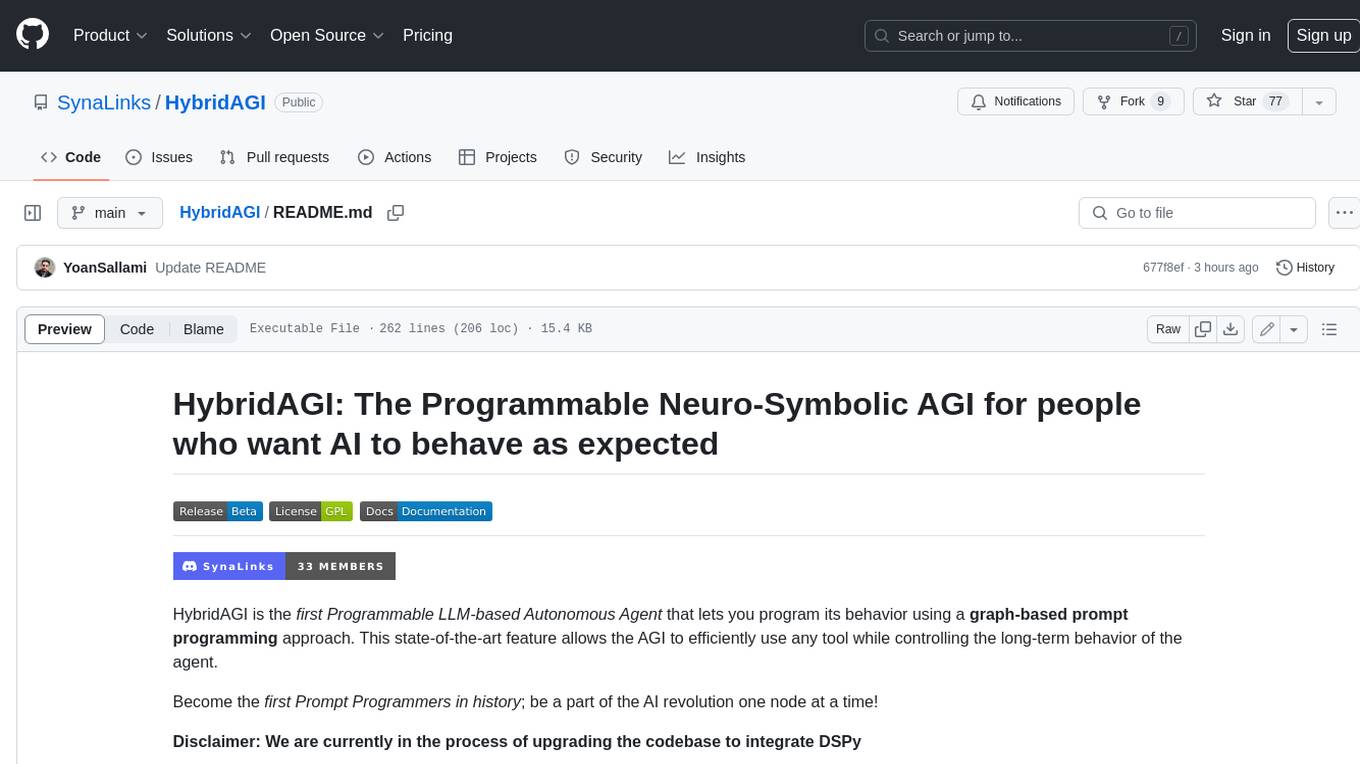
HybridAGI
HybridAGI is the first Programmable LLM-based Autonomous Agent that lets you program its behavior using a **graph-based prompt programming** approach. This state-of-the-art feature allows the AGI to efficiently use any tool while controlling the long-term behavior of the agent. Become the _first Prompt Programmers in history_ ; be a part of the AI revolution one node at a time! **Disclaimer: We are currently in the process of upgrading the codebase to integrate DSPy**
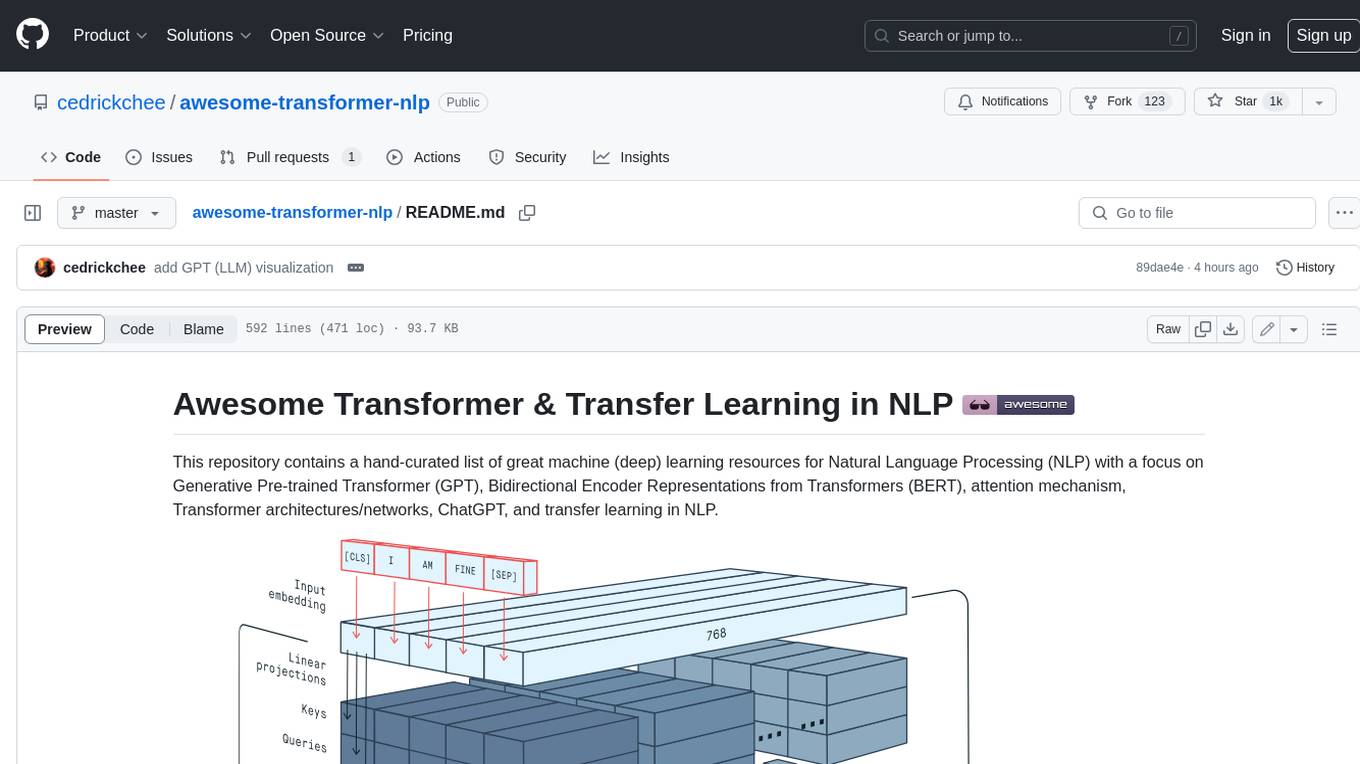
awesome-transformer-nlp
This repository contains a hand-curated list of great machine (deep) learning resources for Natural Language Processing (NLP) with a focus on Generative Pre-trained Transformer (GPT), Bidirectional Encoder Representations from Transformers (BERT), attention mechanism, Transformer architectures/networks, Chatbot, and transfer learning in NLP.

LLM-PowerHouse-A-Curated-Guide-for-Large-Language-Models-with-Custom-Training-and-Inferencing
LLM-PowerHouse is a comprehensive and curated guide designed to empower developers, researchers, and enthusiasts to harness the true capabilities of Large Language Models (LLMs) and build intelligent applications that push the boundaries of natural language understanding. This GitHub repository provides in-depth articles, codebase mastery, LLM PlayLab, and resources for cost analysis and network visualization. It covers various aspects of LLMs, including NLP, models, training, evaluation metrics, open LLMs, and more. The repository also includes a collection of code examples and tutorials to help users build and deploy LLM-based applications.
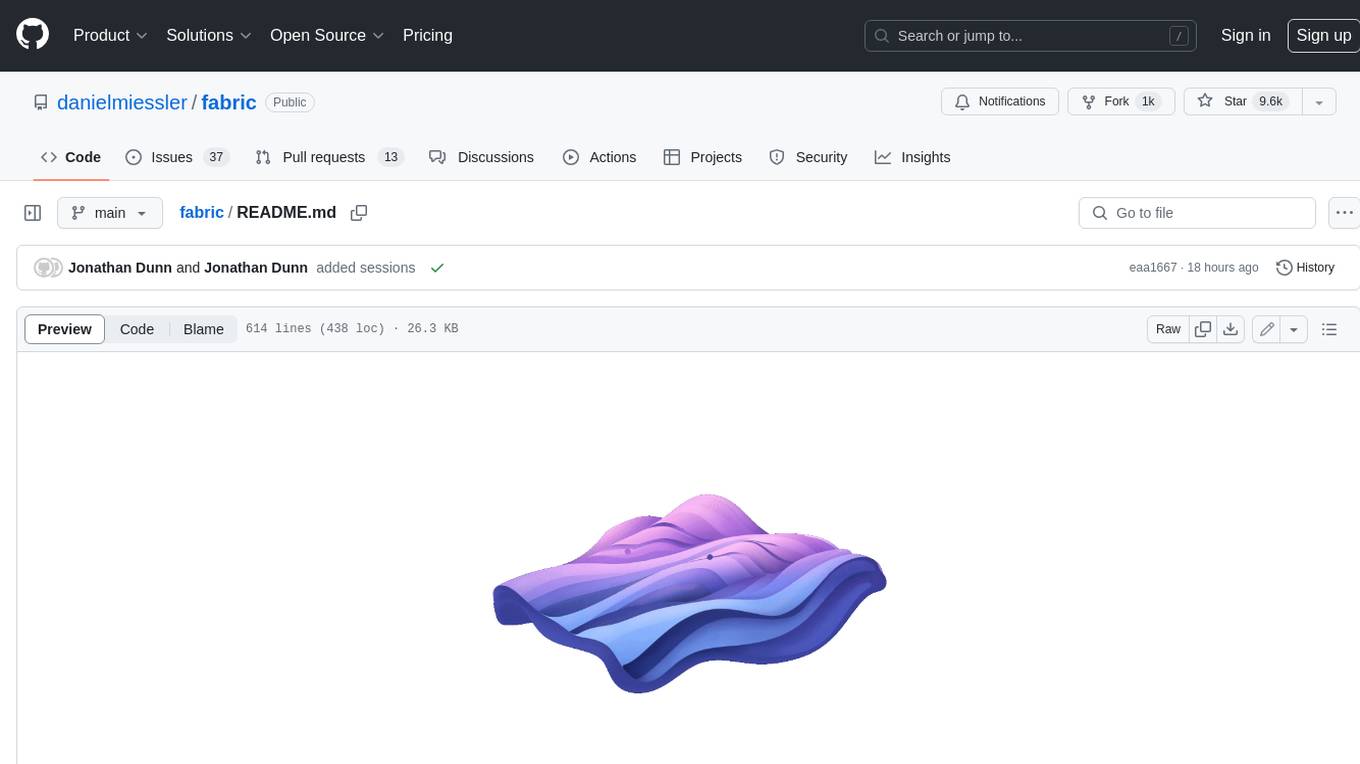
fabric
Fabric is an open-source framework for augmenting humans using AI. It provides a structured approach to breaking down problems into individual components and applying AI to them one at a time. Fabric includes a collection of pre-defined Patterns (prompts) that can be used for a variety of tasks, such as extracting the most interesting parts of YouTube videos and podcasts, writing essays, summarizing academic papers, creating AI art prompts, and more. Users can also create their own custom Patterns. Fabric is designed to be easy to use, with a command-line interface and a variety of helper apps. It is also extensible, allowing users to integrate it with their own AI applications and infrastructure.
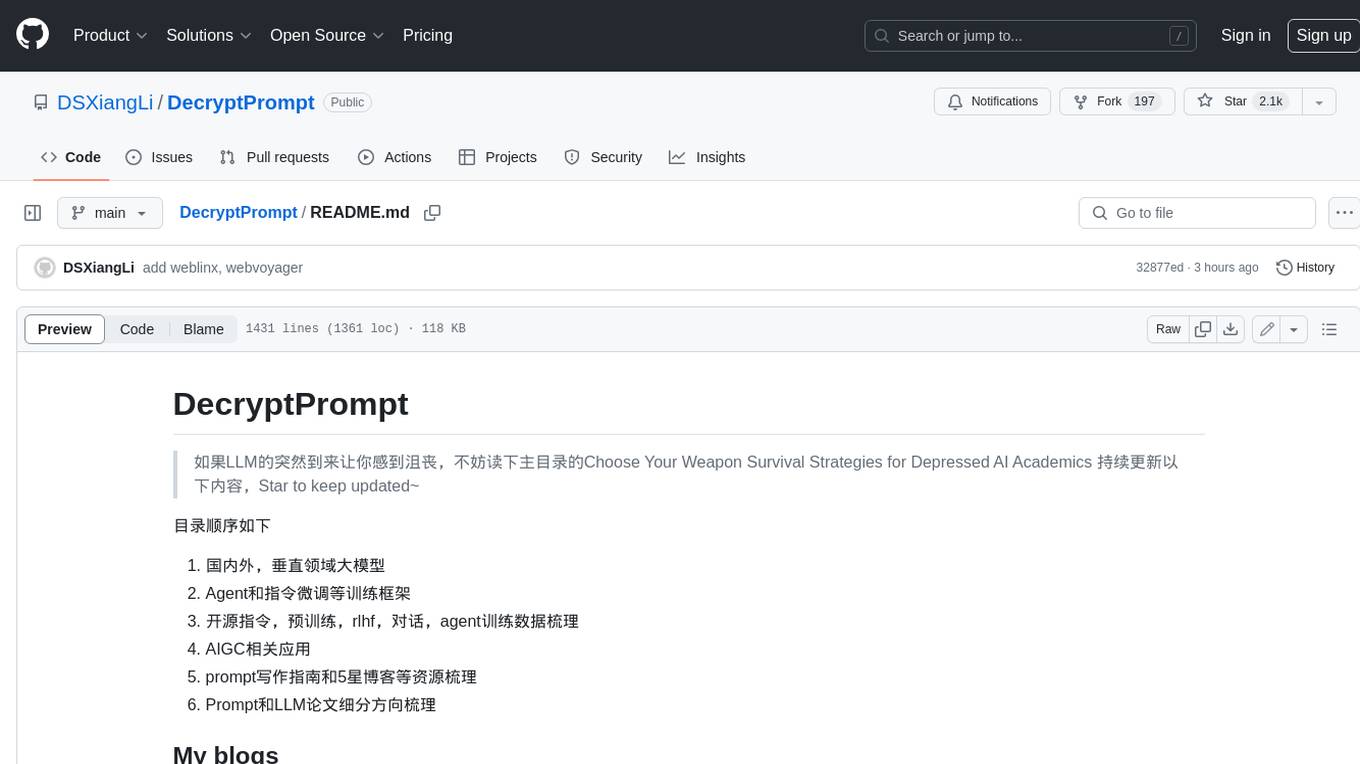
DecryptPrompt
This repository does not provide a tool, but rather a collection of resources and strategies for academics in the field of artificial intelligence who are feeling depressed or overwhelmed by the rapid advancements in the field. The resources include articles, blog posts, and other materials that offer advice on how to cope with the challenges of working in a fast-paced and competitive environment.
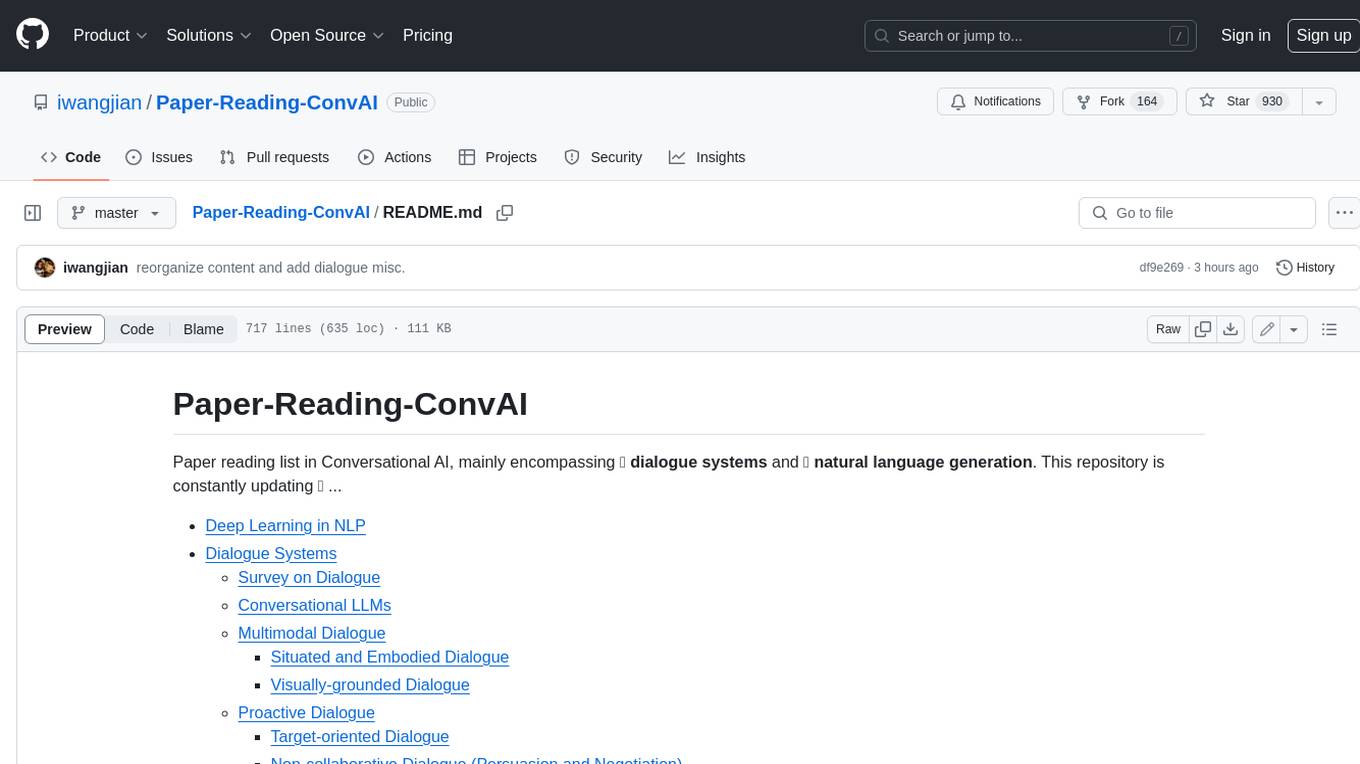
Paper-Reading-ConvAI
Paper-Reading-ConvAI is a repository that contains a list of papers, datasets, and resources related to Conversational AI, mainly encompassing dialogue systems and natural language generation. This repository is constantly updating.
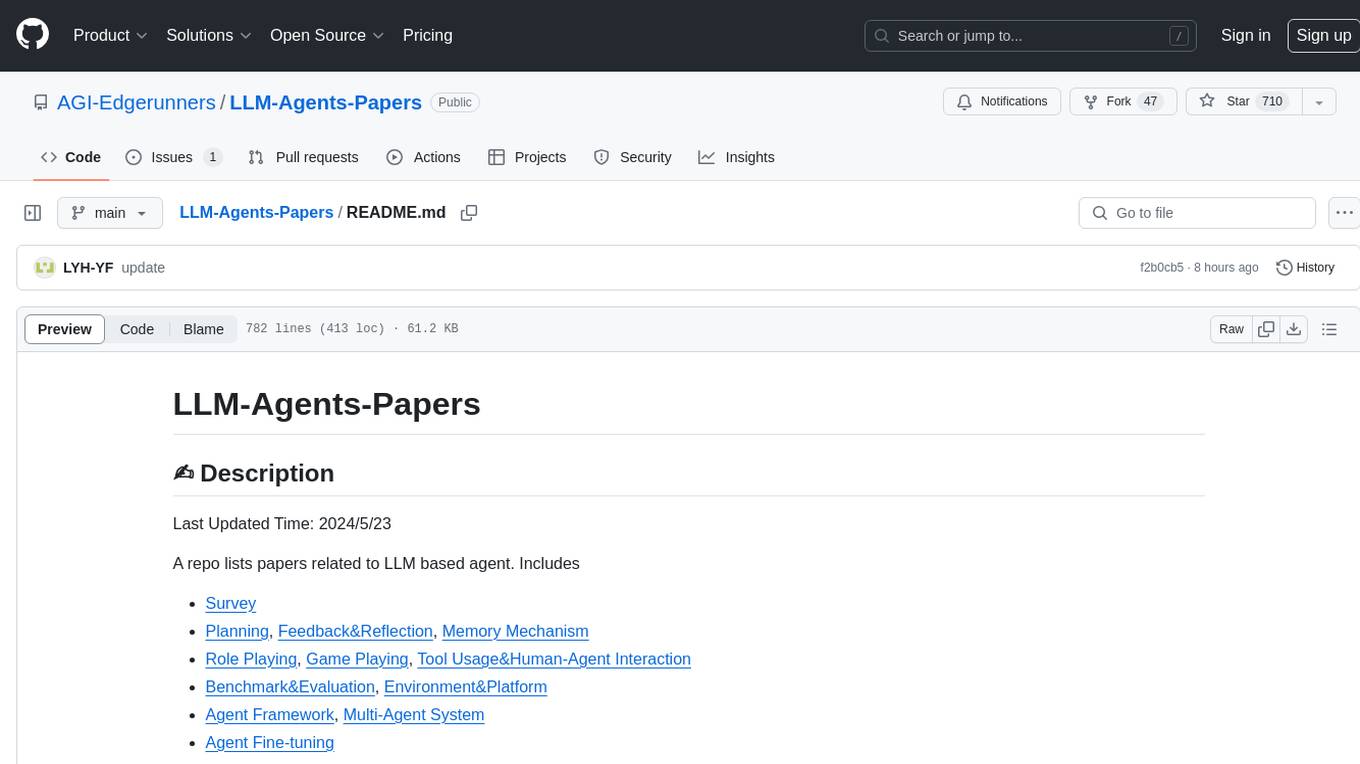
LLM-Agents-Papers
A repository that lists papers related to Large Language Model (LLM) based agents. The repository covers various topics including survey, planning, feedback & reflection, memory mechanism, role playing, game playing, tool usage & human-agent interaction, benchmark & evaluation, environment & platform, agent framework, multi-agent system, and agent fine-tuning. It provides a comprehensive collection of research papers on LLM-based agents, exploring different aspects of AI agent architectures and applications.
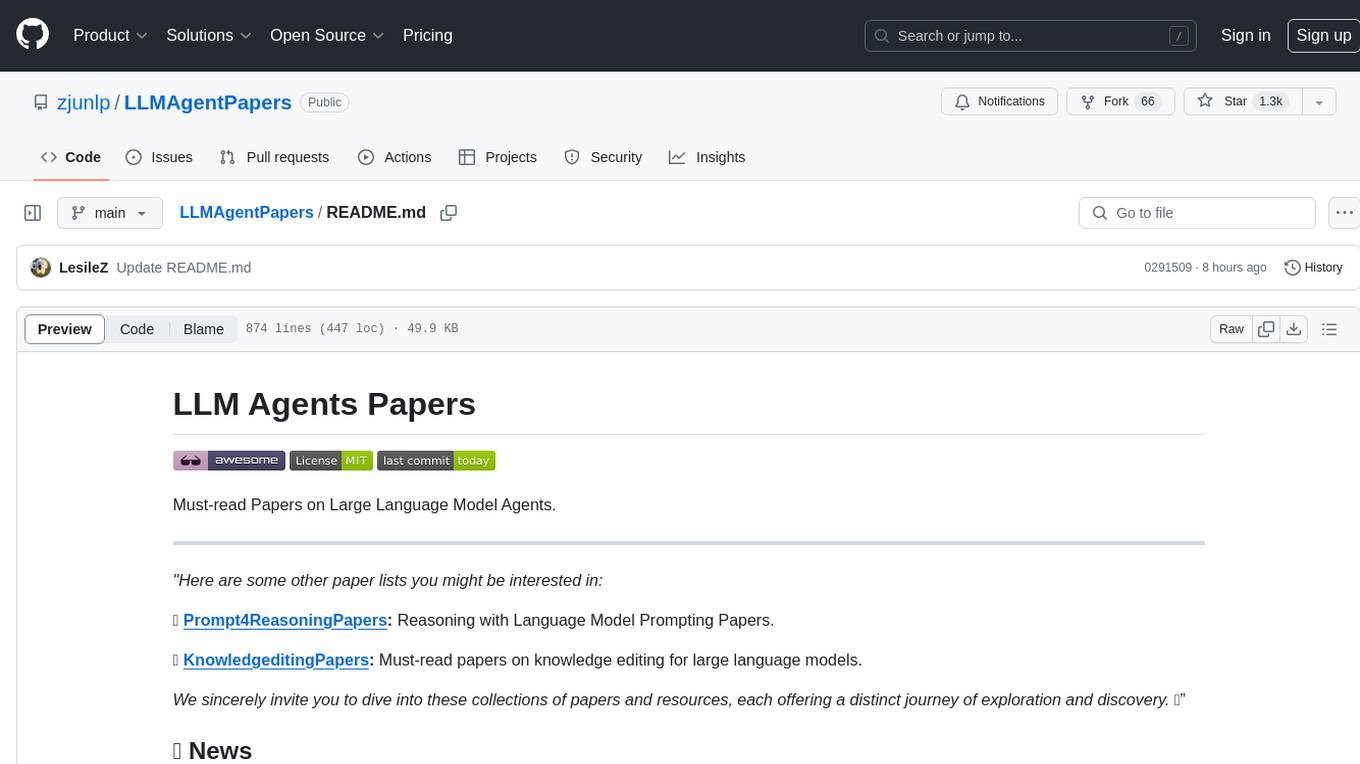
LLMAgentPapers
LLM Agents Papers is a repository containing must-read papers on Large Language Model Agents. It covers a wide range of topics related to language model agents, including interactive natural language processing, large language model-based autonomous agents, personality traits in large language models, memory enhancements, planning capabilities, tool use, multi-agent communication, and more. The repository also provides resources such as benchmarks, types of tools, and a tool list for building and evaluating language model agents. Contributors are encouraged to add important works to the repository.
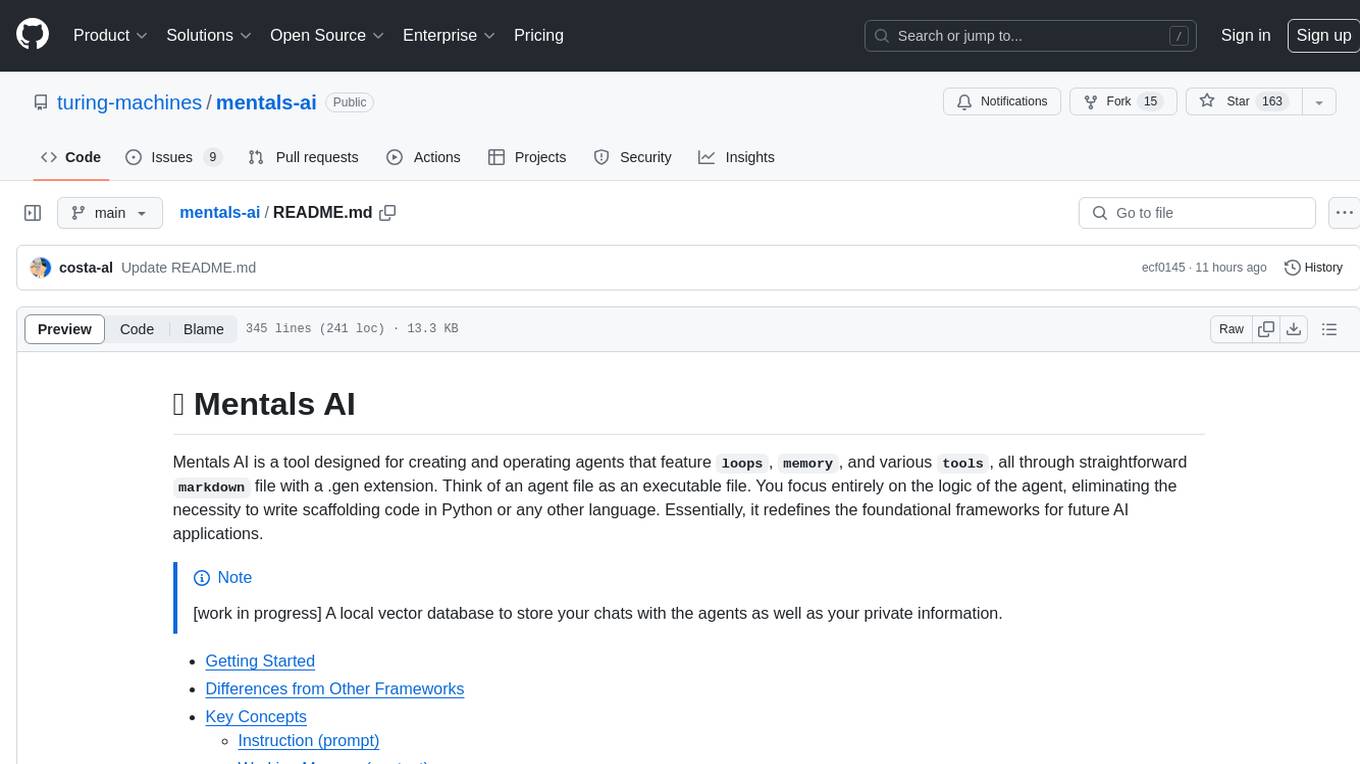
mentals-ai
Mentals AI is a tool designed for creating and operating agents that feature loops, memory, and various tools, all through straightforward markdown syntax. This tool enables you to concentrate solely on the agent’s logic, eliminating the necessity to compose underlying code in Python or any other language. It redefines the foundational frameworks for future AI applications by allowing the creation of agents with recursive decision-making processes, integration of reasoning frameworks, and control flow expressed in natural language. Key concepts include instructions with prompts and references, working memory for context, short-term memory for storing intermediate results, and control flow from strings to algorithms. The tool provides a set of native tools for message output, user input, file handling, Python interpreter, Bash commands, and short-term memory. The roadmap includes features like a web UI, vector database tools, agent's experience, and tools for image generation and browsing. The idea behind Mentals AI originated from studies on psychoanalysis executive functions and aims to integrate 'System 1' (cognitive executor) with 'System 2' (central executive) to create more sophisticated agents.
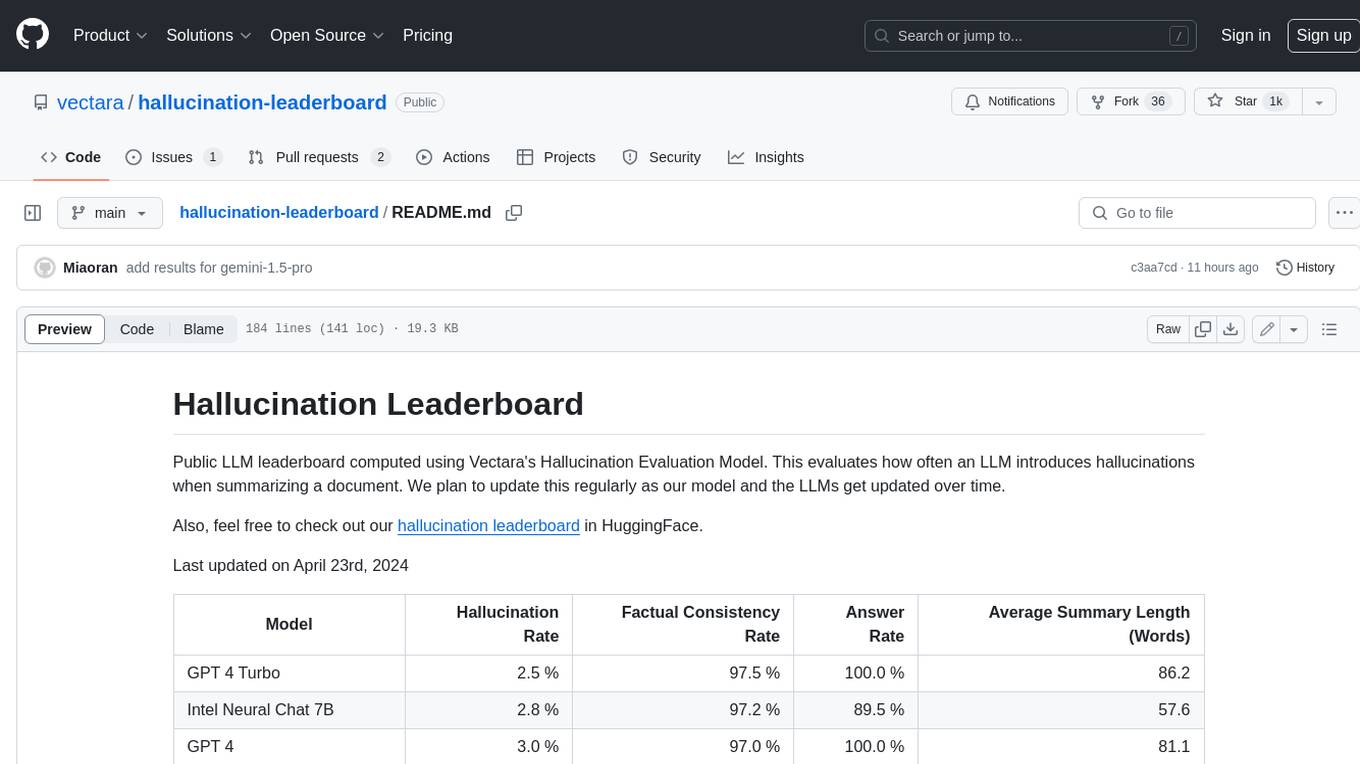
hallucination-leaderboard
This leaderboard evaluates the hallucination rate of various Large Language Models (LLMs) when summarizing documents. It uses a model trained by Vectara to detect hallucinations in LLM outputs. The leaderboard includes models from OpenAI, Anthropic, Google, Microsoft, Amazon, and others. The evaluation is based on 831 documents that were summarized by all the models. The leaderboard shows the hallucination rate, factual consistency rate, answer rate, and average summary length for each model.
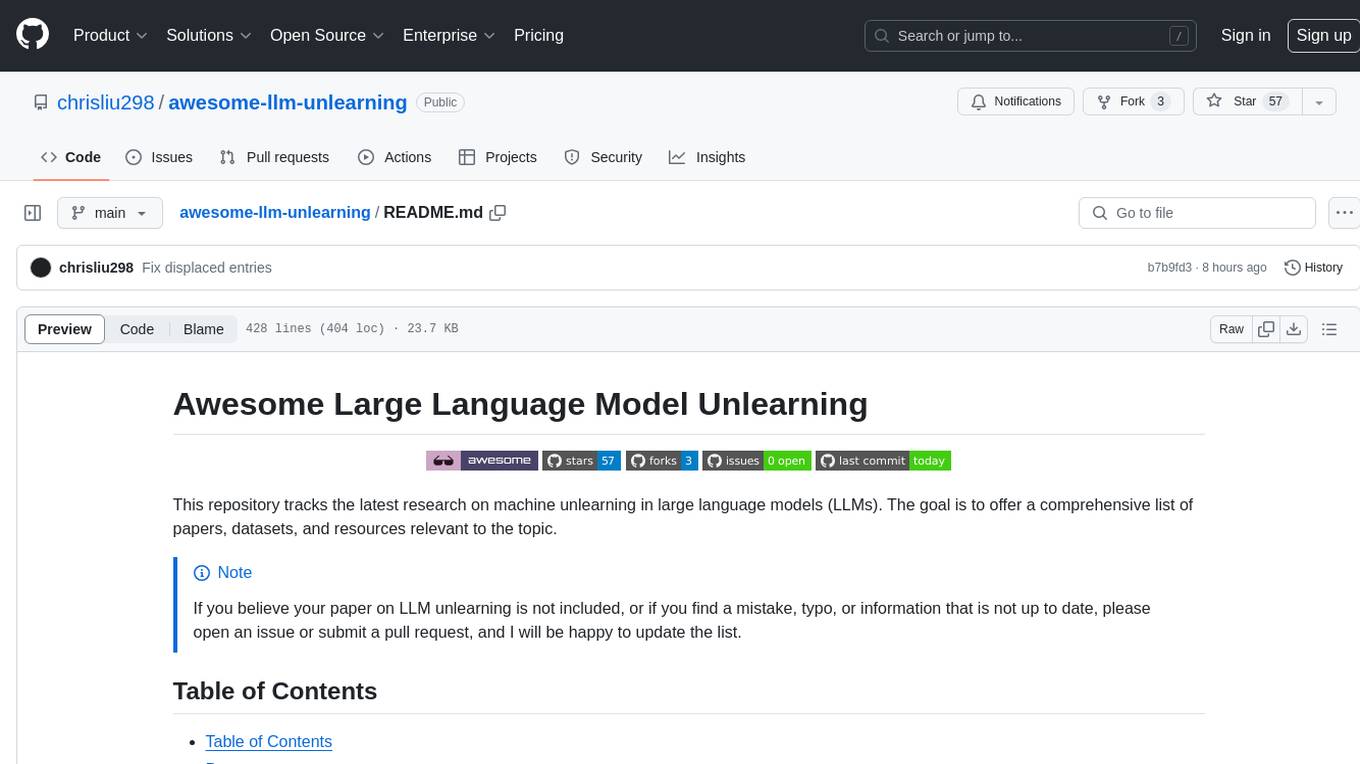
awesome-llm-unlearning
This repository tracks the latest research on machine unlearning in large language models (LLMs). It offers a comprehensive list of papers, datasets, and resources relevant to the topic.
9 - OpenAI Gpts
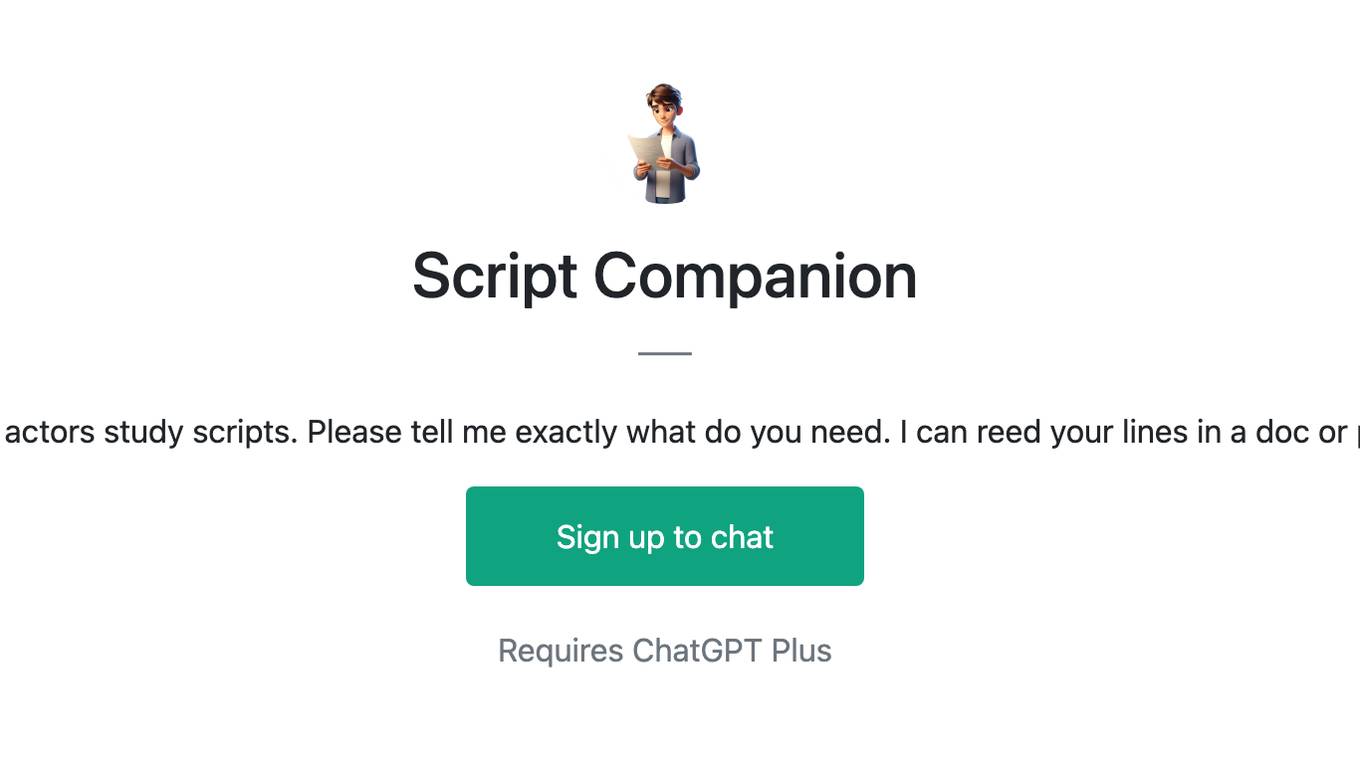
Script Companion
I help actors study scripts. Please tell me exactly what do you need. I can reed your lines in a doc or pdf.
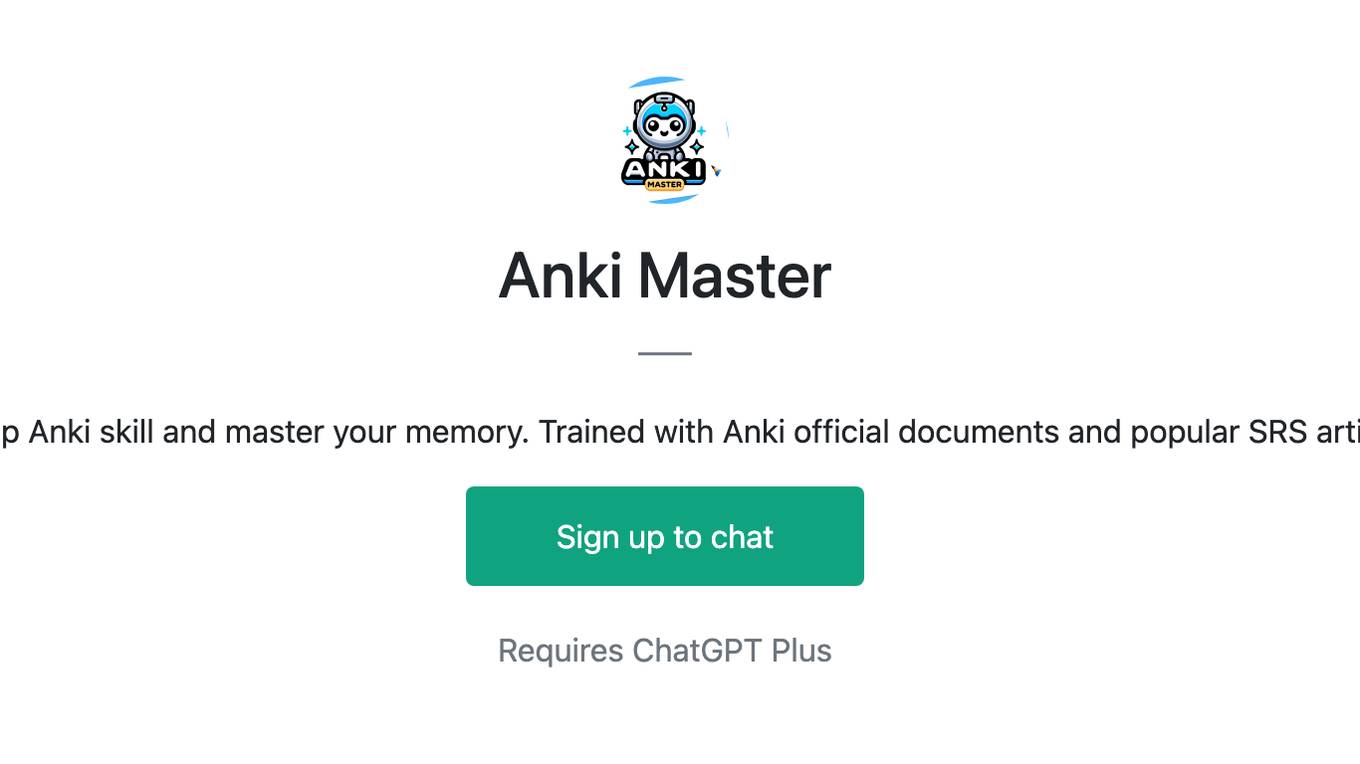
Anki Master
Level up Anki skill and master your memory. Trained with Anki official documents and popular SRS articles.
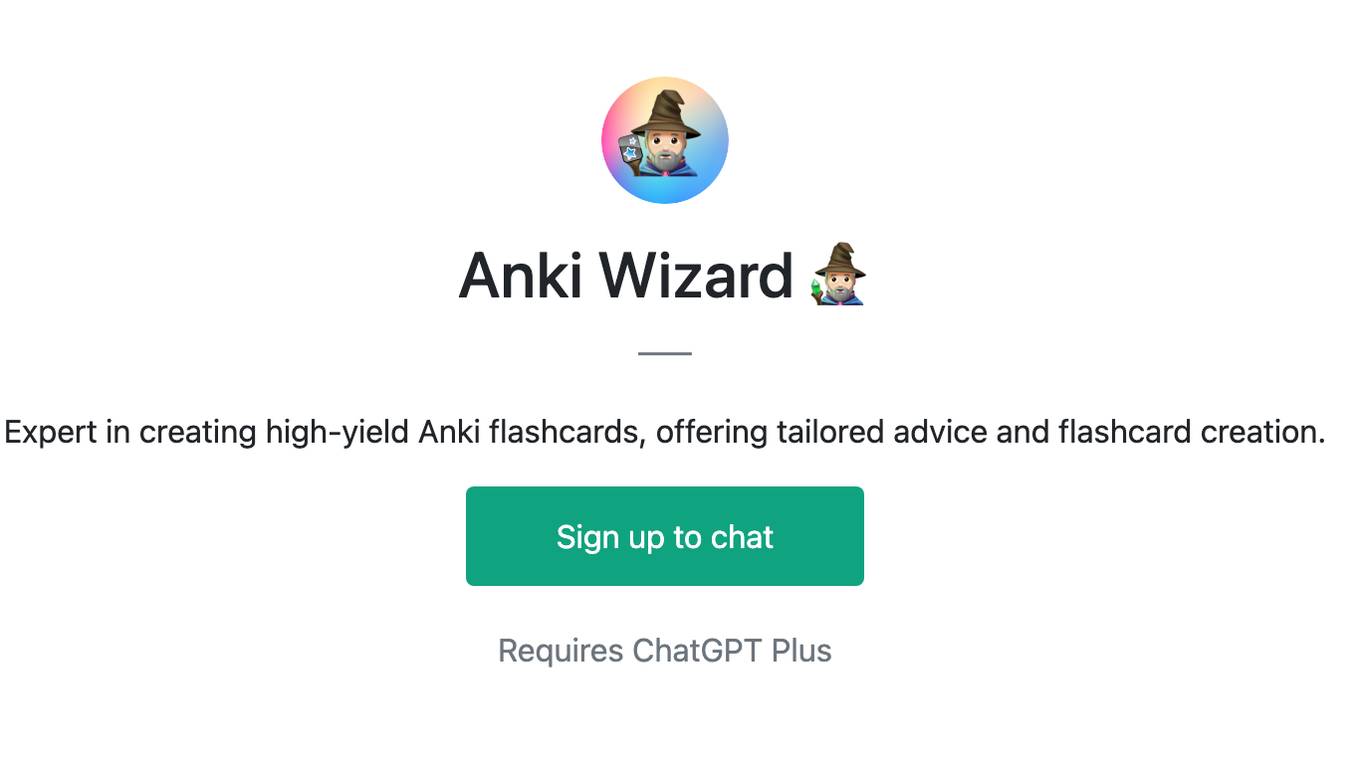
Anki Wizard 🧙🏻♂️
Expert in creating high-yield Anki flashcards, offering tailored advice and flashcard creation.


